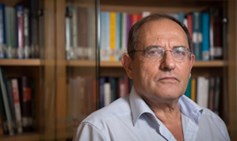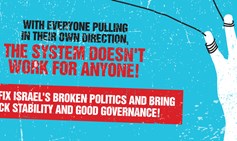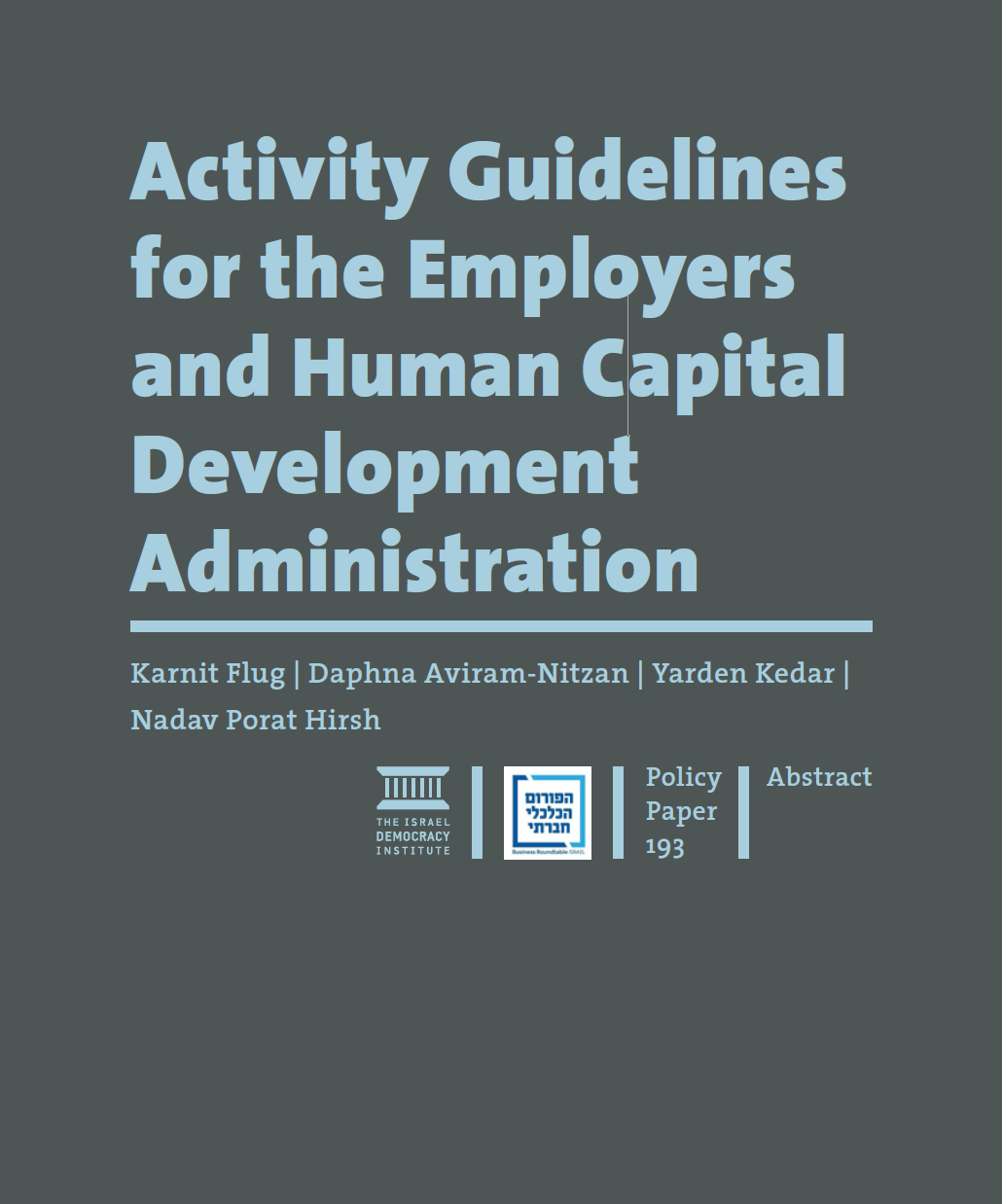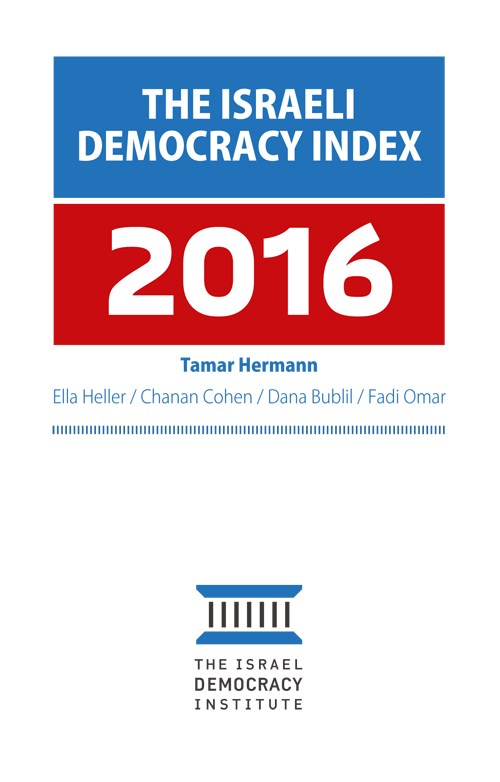

Publications Regarding Governance
Articles

Eric Goldstein CEO of UJA-Federation of NY with IDI's Yohanan Plesner and Shlomit Ravitsky Tur-Paz
Written By: Yohanan Plesner , Adv. Shlomit Ravitsky Tur-Paz
Eric Goldstein, CEO of UJA-Federation of New York, joined Yohanan Plesner, President of the Israel Democracy Institute, and Shlomit Ravitsky Tur-Paz, Director of IDI’s Joan and Irwin Jacobs Center for Shared Society, for an online conversation on “The Fifth Tribe,” the challenges facing American Jewry, and the relationship between Israel and the Jewish diaspora during the war and beyond.

Reuven Rivlin with Prof. Suzie Navot at the Annual Shared Society Conference 2025
Written By: Prof. Suzie Navot
Former President Reuven Rivlin, IDI's Honorary Chair and Joan and Irwin Jacobs Distinguished Fellow, joined IDI's Vice President for Research Prof. Suzie Navot at the annual Shared Society Conference for a conversation on political polarization, the urgent need for genuine constitutional reform, and what it truly means to uphold the principles of a democratic and Jewish state.

Special Review of Public Opinion Ahead of 2026 Elections (IDI's Israeli Democracy Index)
Following the release of the IDI's Israeli Democracy Index earlier this week, we're pleased to present the findings of a special chapter on Israeli public opinion ahead of 2026 national elections in Israel.

Evaluating the ICJ’s UNRWA Advisory Opinion
Written By: Prof. Yuval Shany, Prof. Amichai Cohen
The opinion is correct that Israel violated international law by cutting ties with UNRWA, but some broader observations are questionable.

A Ministry With No Minister
Written By: Dr. Moran Kandelshtein-Haina
Israel currently has six government ministries with no ministers leading them. This is not only a breach of the fundamental duty of government, it also means decisions and regulations requiring ministerial approval cannot move forward, and key public services cannot be delivered to the citizens.

A Review of the Moves Designed to Weaken Israeli Democracy: Working Document
Written By: Adv. Anat Thon Ashkenazy, Adv. Daphne Benvenisty
Knesset Summer Session: April 2025 to July 24, 2025

A Note to Members of Knesset: Immunity Does Not Apply to Police Investigations
Written By: Prof. Suzie Navot, Dr. Moran Kandelshtein-Haina
Though Members of Knesset are granted immunity from prosecution under the law, legal precedent makes clear that this immunity does not apply to the stage of criminal investigations.

The Case for Nuance and Complexity in Israel's Polarized Politics
Written By: Prof. Benjamin Porat
Now more than ever, Israelis must be empowered to form complex, non-sloganeering positions that may not fit superficially into existing frameworks. This is the key to breaking free from the simplistic, dichotomies and gridlock in which our discourse is trapped.

The Appointment of the Next Shin Bet Chief and The Advisory Committee on Senior Civil Service Appointments
Written By: Dr. Assaf Shapira
When and why was the Advisory Committee on Senior Civil Service Appointments established, what are its powers, and which appointments is it supposed to review? Everything you need to know about the "Grunis Committee" that is examining the candidacy of Major General Zini for head of the Shin Bet.

One Minister Wearing Five Hats
Written By: Prof. Suzie Navot, Dr. Moran Kandelshtein-Haina
With Justice Minister Yariv Levin's recent appointment as Acting Minister of Jerusalem and Jewish Heritage, he now holds five ministerial portfolios. This situation, with Levin and other ministers, is harmful to public interest and raises important legal and procedural questions.

Back Into the Abyss: Israel’s Government Fires Attorney General, Supreme Court Blocks the Move
Written By: Prof. Yuval Shany, Prof. Amichai Cohen
The firing of the AG constitutes another escalation in the current government’s approach to the domestic rule of law institutions.

The Impact of AI on Israeli Employment
Written By: Gilad Be'ery
The Head of IDI's Economic Reform Program Gilad Be'ery speaks to Naomi Segal on Kan Radio English about his new analysis on business adoption of AI in Israel. The analysis, based on a first-of-its-kind Central Bureau of Statistics (CBS) survey, finds that 28% of Israeli businesses have used AI in the past six months, and that AI is beginning to do the tasks of humans in the workplace. Gilad discusses the implications of these findings and what might lie ahead for Israeli workers. To read the full analysis, click here.

Business Adoption of AI in Israel: Initial Insights from a First-of-Its-Kind Survey
Written By: Gilad Be'ery
A new IDI analysis of a Central Bureau of Statistics survey finds 28% of businesses in Israel used AI in the past six months as part of their business activity. In terms of employees, the proportion is even higher, with 32% of employees working in businesses in which AI is being used.

Dismissing the Attorney General
Written By: Dr. Guy Lurie, Dr. Amir Fuchs
This paper describes the procedure that has been laid out for dismissing the attorney general, its recent revision, and explains why the decision by the Netanyahu government to fire the attorney general at the current time is legally invalid.
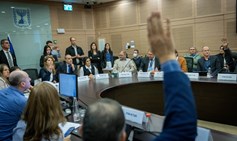
What is the “MK Expulsion Law?"
Written By: Dr. Amir Fuchs, Avital Friedman
The Knesset passed Amendment 44 in 2016 to regulate the possibility of impeaching MK's. An MK can be expelled if the Knesset finds that his or her actions constituted incitement to racism or support of an armed struggle against Israel.

Even in Times of Crisis, Police Must Be in Command of Civilian Defense Squads
Written By: Adv. Mirit Lavi, Dr. Yael Litmanovitz
The work of civilian defense squads serves a real security need and bolsters the functioning of the police. But an incident from the Israel-Iran war reminds us that, even in an emergency, they are still subject to the law and must still operate within the limits and frameworks set for them by the police.

Operation Rising Lion: A Special Home Front Situation
Written By: Prof. Amichai Cohen, Adv. Mirit Lavi
What are the implications of declaring a "special home front situation", and what powers does such a declaration confer to Israeli authorities? Are the restrictions that the government has imposed on citizens leaving Israel legal? What rights do citizens have in areas regarding which such a declaration has been made? What’s the difference between a "special home front situation" and the ongoing "emergency situation" that has long been in force in Israel? This article explains these issues, and more.

The Case for Common Sense Knesset Electoral Reform
Written By: Dr. Assaf Shapira
In a semi-open ballot system, voters would see electoral lists and be able to select "preferred candidates" when they vote. This commons sense reform would strengthen democracy, allowing for a fuller expression of voter preferences and an increased connection between voters and their elected officials.

The Attorney General’s Agreement with Ben-Gvir
Written By: Prof. Suzie Navot, Adv. Mirit Lavi
The Attorney General recently announced an agreement with Itamar Ben-Gvir in response to petitions challenging his reappointment as Minister of National Security. What is included in this agreement, can it be enforced, and is it an appropriate solution to ensure an independent police force?

Some No Longer Believe the Prime Minister Can Violate the Rule of Law - He Is the Law
Written By: Adv. Anat Thon Ashkenazy
When loyalty to the Prime Minister is seen as loyalty to the law itself, Israel risks replacing democracy with rule by decree—undermining the very foundations of the rule of law.

Budget Allocation to the Ultra-Orthodox Education System Under 2025 Coalition Agreements
Written By: Ronny Barboy, Dr. Neri Horowitz
A "nuts and bolts" review of the coalition agreement related to Haredi education in the 2025 State budget.

The Reappointment of Ben-Gvir as Minister of National Security is ‘Extremely Unreasonable’
Written By: Prof. Suzie Navot, Adv. Mirit Lavi
The reappointment of Itamar Ben-Gvir as Minister of National Security, despite legal objections and a documented pattern of improper political interference in police operations, constitutes an "extremely unreasonable" decision that threatens the independence, professionalism, and democratic integrity of Israel’s law enforcement system.

Explainer: The Prime Minister’s Decision to Pursue the Dismissal of the Head of the Shin Bet
Written By: Prof. Amichai Cohen, Dr. Eran Shamir-Borer
On March 20, 2025, Israel’s government voted in favor of Prime Minister Benjamin Netanyahu’s decision to dismiss Ronen Bar, head of the Shin Bet, citing "growing distrust" in the security chief. The following document answers key legal questions around this announcement.

Exploiting the Public's Distraction to Pursue the Judicial Overhaul
Written By: Dr. Guy Lurie
Amidst the return to fighting in Gaza, the Minister of Justice is taking advantage of the public's eye being off the ball to hastily overhaul Israel's judicial system.

Four Comments on the Decision to Dismiss the Head of the Shin Bet
Written By: Prof. Suzie Navot
On March 16, 2025, Prime Minister Netanyahu announced his intention to bring the dismissal of Ronen Bar, the head of the Israeli Security Agency (Shin Bet), Israel's internal security service, to a vote of the full cabinet. Though not a perfect comparison, the Shin Bet is often seen as comparable to the FBI in the US.

Israel Needs a DOGE, But Not Like America’s
Written By: Tomer Lotan
Many in Israel have watched Elon Musk's DOGE department and advocated for implementing the same approach in Israel. However, the model should be attuned to Israeli needs, including reducing the inflated number of government ministries and curbing wasteful budget allocations, such as the coalitionary funds.

Public Opinion Survey on Representation of Women in Influential Roles Part I
Written By: Adv. Anat Thon Ashkenazy
A survey on women's representation conducted among men and women in Israel. Findings show that most (65%) consider equal representation when deciding on which party to vote for; 71% think the number of women in the Knesset, the government and in senior positions should be increased.

Israel’s Renewed Judicial Overhaul
Written By: Prof. Yuval Shany, Prof. Amichai Cohen
The battle over Israel’s legal system has resumed, threatening judicial independence.

Women’s Representation in Israeli Politics: Analysis for 2025
Written By: Prof. Ofer Kenig
An analysis and international comparison of women's representation in the Israeli political arena.

The Dangerous Politicization of Judicial Appointments
Written By: Dr. Amir Fuchs
Changes in the composition of the Judicial Selection Committee threaten the independence of the judicial system. The current proposals would lead to a complete politicization of appointments to all courts and should be blocked.

Bill Proposal: Ombudsman of the Israeli Judiciary (Amendment – Appointment of the Ombudsman), 2024
Written By: Dr. Guy Lurie, Dr. Amir Fuchs
The proposed bill, which would change the selection process of the Ombudsman - responsible for investigating complaints about the conduct of judges and religious court judges - aims to intimidate judges and undermine their independence.

A Chief Justice Under Attack
Written By: Prof. Suzie Navot
While the selection of Justice Amit as President of the Supreme Court was done in accordance with the relevant legislation, the Justice Minister has declared the procedure "fundamentally improper and illegal." His refusal to recognize the selection creates a precedent that may lead to the deterioration of the authority of other institutions. This is what the beginning of a constitutional crisis looks like.

No Voice: The Lack of Voting Opportunities in Israeli Democracy
Written By: Dr. Assaf Shapira, Prof. Ofer Kenig, Dr. Amir Fuchs, Asaf Heiman
In recent years, it has repeatedly been claimed that “Israel has too many elections.” On the one hand, this is true, Israel has the highest frequency of parliamentary elections compared to all developed democracies. On the other, Israelis have fewer voting opportunities.

Does the Minister of Justice Have Immunity?
Written By: Prof. Suzie Navot, Dr. Moran Kandelshtein-Haina
In response to a petition filed against him regarding the intentional delay in appointing a president of the Supreme Court, Minister Levin claimed that it is impossible to sanction him because he enjoys “substantive immunity.” A closer examination of the law reveals that this is not the case.

“If I am not the one deciding – then we will change the rules”
Written By: Prof. Suzie Navot
In September, the Supreme Court ordered the Minister to fulfill his duty to convene the Committee because the system cannot be paralyzed. Since then, the Minister has convened the committee, but refused to appoint the Supreme Court President. Now, the Court has ordered him to do so.

Five Lessons from South Korea: On Democracy, Liberty and States of Emergency
Written By: Dr. Nadav Dagan
When South Korean President Yoon Suk Yeol, who previously praised liberal democracy, declared martial law, a swift and decisive response from the general public, and subsequently parliament, thwarted the move within hours. These events illustrate that in order to increase the chances of recovery and inoculation against democratic backsliding, democratic institutions must be strengthened.

New Bill Proposed Expands the Criteria for Disqualification of Electoral Lists
Written By: Dr. Amir Fuchs
A new bill proposes to amend Basic Law: The Knesset, by expanding the criteria that would disqualify candidates and lists from participating in elections based on minimal and even past expressions, interpreted as sympathy or support for armed struggle of an enemy state or terrorist organization.

Emergency support for Israel must also go toward strengthening its democratic institutions
Written By: Mr. Amir Elstein
Physical reconstruction and addressing emergency needs are helpful, but to really make a difference post-Oct. 7 donors should focus on improving Israeli governance and civil society

High Levels of Trust in IDF More than One Year Into the War, Except Among Ultra-Orthodox and Arab Israelis
Written By: Viterbi Family Center for Public Opinion and Policy Research, Center for Security and Democracy
A special survey assessing public opinion on matters of national security, presented at IDI's annual conference on Security and Democracy. The survey found support for a mandatory draft, and significant economic penalties for those who do not serve.

IDI Survey: Most Jewish Israelis feel safer in a scenario with high number of civilian firearms; most Arabs feel less safe
Written By: Viterbi Family Center for Public Opinion and Policy Research, Center for Security and Democracy
The Center for Security and Democracy and the Viterbi Center for Public Opinion and Policy Research at the Israel and personal security—the present release focuses on internal security; a press release will follow tomorrow focusing on national security.

The Proposed "Softened Rabbis Bill" Complicates the Budgeting Process for Religious Councils
Written By: Dr. Ariel Finkelstein
The recently proposed bill runs counter to accepted budgeting principles and undermines the autonomy of local governance.

Minister of Defense Gallant is Fired: A Review of the Dismissal of Israeli Cabinet Ministers
Written By: Prof. Ofer Kenig
At first glance, the dismissal of Minister of Defense Yoav Gallant is not unprecedented – prime ministers hold authority to fire ministers, and Prime Minister Netanyahu has done so in the past. However, the circumstances surrounding the current dismissal are especially intense.

The Police Commissioner’s Response to the Attorney General is Worrying, Erroneous and Dangerous
Written By: Dr. Eran Shamir-Borer, Dr. Guy Lurie
The Police Commissioner's decision to terminate the Israel Police Legal Advisor without consulting the Attorney General to whom the Police Lega Advisor is professionally subordinate the most recent worrying sign of the problematic relations between the Attorney General and various government officials.

Conversations with Cosgrove: Israel's Democracy with Yohanan Plesner
Written By: Yohanan Plesner
Rabbi Cosgrove discusses the current political climate in Israel with Yohanan Plesner.

Why Does Everyone Except the Prime Minister Want a State Commission of Inquiry?
Written By: Dr. Dana Blander
Establishing a State Commission of Inquiry is the civic, moral, and public duty at the highest order. And it must be done now.

Could Sderot Have the Same Standing as Tel Aviv? Perhaps If We Reform the Electoral System
Written By: Dr. Assaf Shapira, Prof. Gideon Rahat
Israel is the only OECD member that has neither regional elections nor a personal element in the electoral system. This is not simply a technical issue but has far-reaching implications relating to the quality of representation and the obligation elected officials have toward their voters.

The Security Cabinet Should Play a Greater Role in Determining Hostage Negotiations
Written By: Prof. Amichai Cohen, Adv. Mirit Lavi
The Prime Minister’s decision to retain the power to determine the parameters and scope of the hostage deal as a “policy issue” disregards the implications such a deal has on security issues. Israeli history underscores the importance of convening the security cabinet and upholding the appropriate democratic channels in times of war.

The Majority of the Israeli Public Supports Establishing a State Commission of Inquiry into the Events of October 7
Written By: Dr. Dana Blander, Dr. Eran Shamir-Borer, the Viterbi Family Center for Public Opinion and Policy Research
A special survey conducted in July 2024 evaluated public opinion on the need to establish a commission of inquiry into the tragic events of October 7th, 2024.

Netanyahu and His Ministers Have Driven Israel to the Verge of a Constitutional Crisis
Written By: Dr. Amir Fuchs
Disregard of the Attorney General’s authority to interpret the law by several government ministers is leading Israel toward a constitutional crisis.

The Role of the Attorney General and Government Conduct
Written By: Dr. Guy Lurie, Adv. Anat Thon Ashkenazy, Adv. Daphne Benvenisty
In recent days the Attorney General has issued several warnings that decisions are being made using "flawed work processes." This explainer provides an overview of the role and importance of the Attorney General in Israeli democracy, and the current criticism directed by the AG at the government.

Judicial Selection in Israel in the Aftermath of the Judicial Overhaul
Written By: Dr. Guy Lurie
With the outbreak of the war in October 2024, the Prime Minister announced that he was halting all legislation relating to the judicial overhaul, however, various government actions raise questions regarding its intentions in relation to the overhaul and whether it might be trying to advance it by other means beyond legislation.

Even Against Terrorists – The Rule of Law Prevails
Written By: Prof. Suzie Navot, Adv. Sapir Paz
The rule of law is a fundamental democratic principle, meaning that all governing bodies are subject to and must comply with the law. Despite the complexities inherent in ongoing war, this is true also of the IDF, and only decisive action against breaches of conduct may protect the rule of law in Israel and Jewish morality.

The Judicial Overhaul and Anti-Democratic Initiatives - Part II
Written By: Adv. Anat Thon Ashkenazy, Adv. Daphne Benvenisty
IDI experts outline the initiatives and measures undertaken by the government that, taken together, constitute a concentrated effort undermine Israel's democratic institutions. At the core of these efforts is a dramatic attempt to weaken the status of the Attorney General; increased politicization of the police; continued undermining of the independence of the judiciary and more.

Official State Commission Sends Warning Letters in Submarine Acquisition Inquiry
Written By: Dr. Amir Fuchs
The State Inquiry Commission on Naval Vessels was tasked with examining the decision-making processes at both the professional and political levels between 2009-2016 in relation to the acquisition of naval vessels during those years.

The New Rabbis Law Includes a Number of Inherent Flaws
Written By: Dr. Ariel Finkelstein
Dr. Ariel Finkelstein warns that the proposed new "Rabbis Law" would weaken the standing of local communities, could lead to cronyism, reduce women's representation and more.

The Independence of the Israel Police and the Limits of Political Intervention in Its Operations
Written By: Dr. Eran Shamir-Borer, Adv. Mirit Lavi
Israeli Supreme Court Hearing on what is known as the "Ben Gvir Amendment" to the Israel Police Ordinance.

“Unity” as a Means to Weaken the Judicial System
Written By: Dr. Guy Lurie
While the Israeli public has been focusing on the war and on the hostages in Gaza, the government—led by the minister of justice—has been preparing an assault on the independence of the judicial system.

‘Mumbai and Tel Aviv Effect’: An Alternative to the ‘Bandwagon Effect’ of Brussels and Washington in Global AI Regulations
Written By: Dr. Tehilla Shwartz Altshuler, Rajan Luthra
The Brussels Effect and the Washington Effect represent two paradigms in the realm of AI governance, each with its own strengths and challenges. However, the tension between "accelerationists" and "regulationists" demands alternative proposals. One of them is introduced in this report as the "Mumbai and Tel Aviv Effect."

The Situation for Women in Israel: More Violence, Less Representation and Growing Exclusion from Public Service
Written By: Adv. Anat Thon Ashkenazy
Women in senior government positions are leaving their roles, the number of victims of domestic violence is rising, and the prevailing spirit from the government does not bode well. Now more than ever, there must be a call for immediate and fundamental change in placing women's rights at the top of the national agenda.

The Effectiveness of the Public Services in Israel: An International Comparison
Written By: Adv. Rita Golstein-Galperin, Ofir Mohaban, Roe Kenneth Portal
The tragedy of October 7, and the lack of a public sector response over the course of the ongoing crisis, shed light on the grim situation. This review presents figures and trends relating to the performance of the public sector and its ability to provide services and solutions in real time.
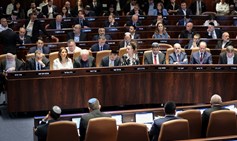
The Judicial Overhaul and Anti-Democratic Initiatives
Written By: Adv. Anat Thon Ashkenazy, Adv. Daphne Benvenisty
Judicial overhaul initiatives, along with other anti-democratic measures, have continued to be promoted by the government and the coalition in the Knesset. This document outlines the various actions taken in government that weaken the Israeli judiciary and democracy at large.
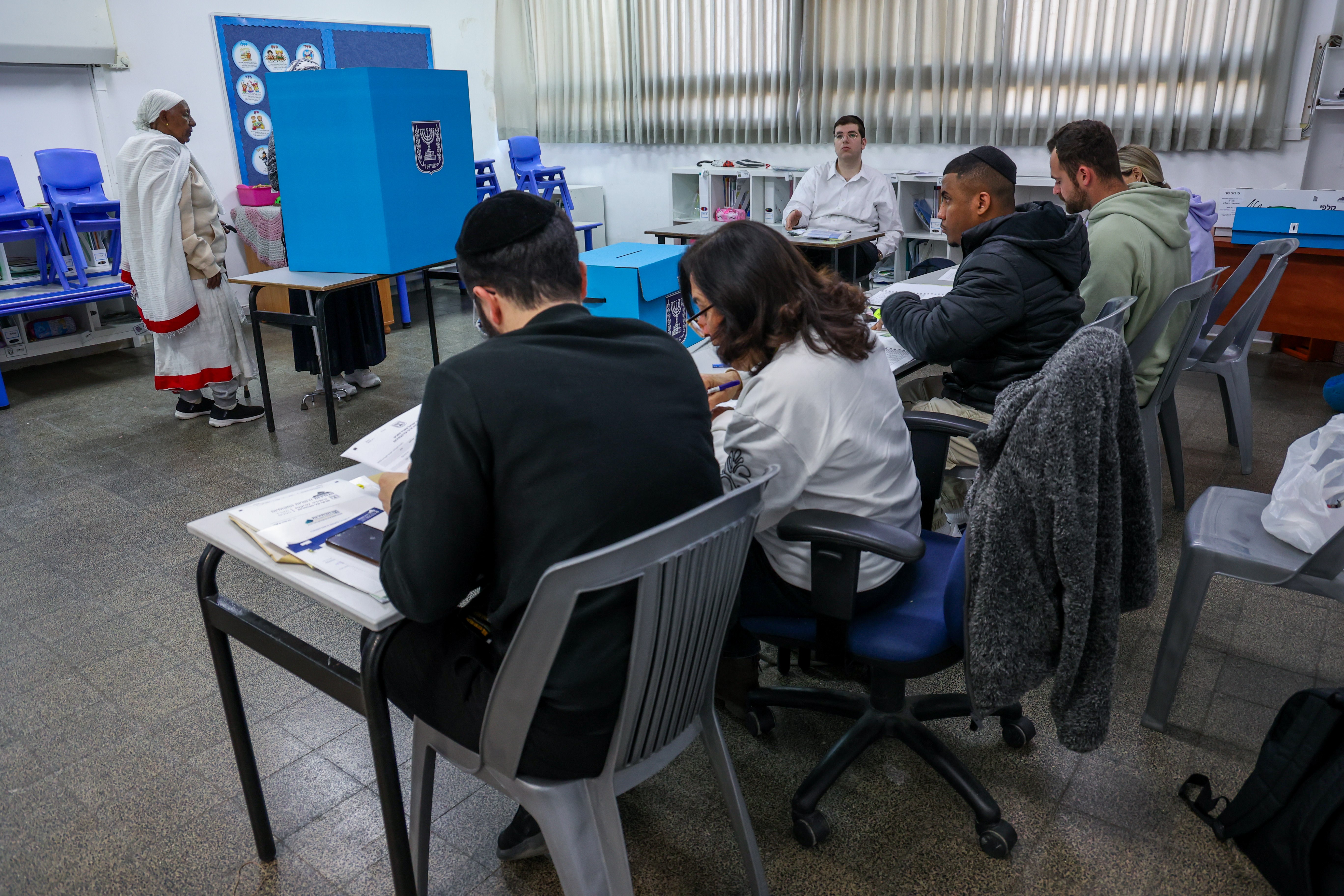
Analysis of the 2024 Local Elections
Written By: Dr. Ariel Finkelstein
On February 27, 2024, elections were held in 242 localities throughout Israel. The following analysis reviews the results of the elections from a number of angles.

Continue to Stand Guard: Israel's Decline in Global Democracy Metrics is Troubling, but Not Catastrophic
Written By: Dr. Assaf Shapira
V-Dem's latest report downgraded Israel's status from a "liberal democracy" to an "electoral democracy." The change in Israel's category is concerning, but on its own, it does not necessarily indicate a clear democratic decline.
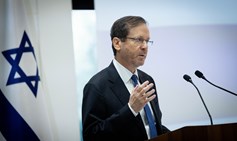
Despite the Criticism, the Public’s Confidence in the President of Israel Has Increased—Evidence of a Yearning for Nonpartisanship in a Tumultuous Time
Written By: Dr. Dana Blander
What has produced the rise in the President’s confidence rating? One explanation is the public’s yearning for nonpartisanship in a time of crisis.
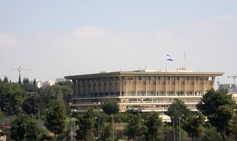
The Israeli Democracy Index 2023
The IDF and local authorities received the highest trust ratings from the Jewish public, while the political institutions were at the bottom with the lowest level. The post October 7th survey also saw a substantial increase in trust in the Israeli police.

The Disbandment of the National Unity Party Does Not Contribute To Political Stability
Written By: Dr. Assaf Shapira
The National Unity faction in the Knesset is disbanding and reverting into the two parties that composed its list of candidates in the last election. The splitting of joint lists does not contribute to political stability. It contributes to fragmentation within the political system and may be perceived as political cynicism.
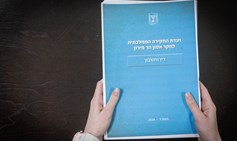
What the Mount Meron Disaster Commission of Inquiry Teaches us about a Future Commission of Inquiry on the October 7 Massacre
Written By: Dr. Dana Blander
Israel's Commission of Inquiry into the Mount Meron disaster released a report that criticizes shortcomings in the culture of accountability in Israel. The Committee distinguished between personal responsibility and ministerial responsibility and offered important recommendations, including for police operations during mass events.

Women’s Representation in Israeli Politics: Analysis for 2024
Written By: Prof. Ofer Kenig
Between 1996 and 2015, there was a real improvement in women's representation in the Knesset. Since 2015, however, it seems this upward trend has stalled and female legislative representation is faltering, especially compared to other democracies.

Local Elections: A Much Needed Balance of Power
Written By: Dr. Ariel Finkelstein
The local elections this week in Israel—taking place at a time of war—have many Israelis asking, perhaps louder than usual, is it actually important to vote in these elections? The answer to this question is a resounding yes.
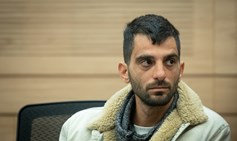
The Sanctions Against Israelis
Written By: Prof. Amichai Cohen
The US, the UK, France and other states have announced the imposition of economic sanctions on Israeli residents who are believed to be complicit in 'settler violence.' This document aims to outline the framework of international economic sanctions and contextualize the sanctions imposed on Israelis.

The Political Structure of Haredi Local Authorities and Its Influence on How They Operate
Written By: Dr. Ariel Finkelstein
How are elections in ultra-Orthodox municipalities different from those in non-orthodox local authorities? Are they comparable to the Arab community? A survey an analysis of the political structure of Haredi local authorities.
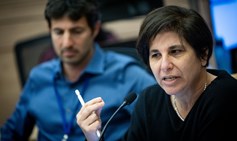
The Inexcusable Absence of Women in Israeli Ministry Leadership Roles
Written By: Adv. Anat Thon Ashkenazy
Minister of the Economy Barkat's decision to remove Adv. Michal Cohen from her role as Director of the Competition Authority compounds a two-pronged problem. On the one hand, the diminishing number of women in Ministry leadership roles, and on the other, increased political interference in professional authorities, risking their independence and professional standards.
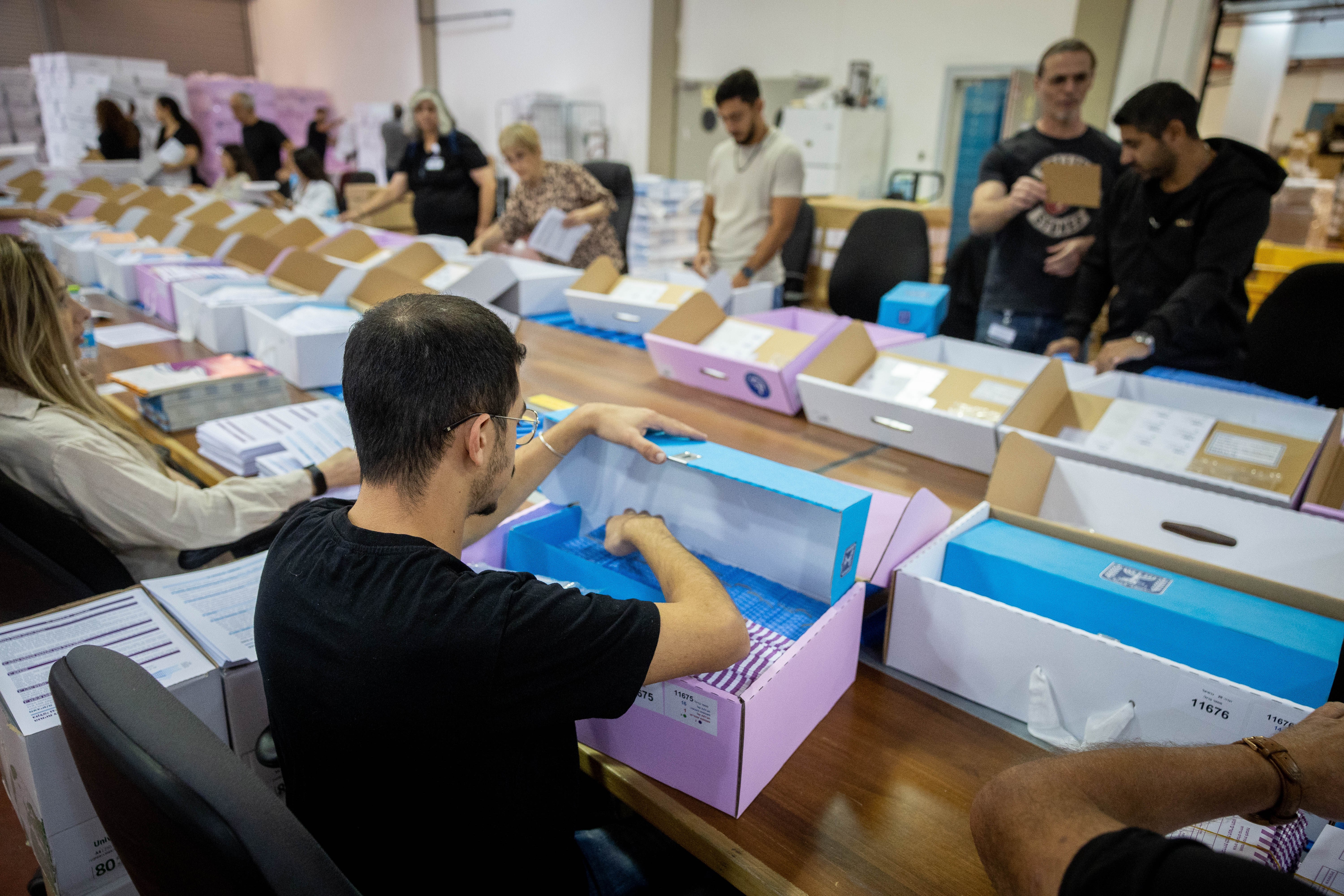
Your Questions Answered About Israel's Wartime Local Elections
Written By: Dr. Assaf Shapira
In a few weeks elections will be held in local authorities across Israel. While they were originally scheduled for October 31st, 2023, they were postponed due to the outbreak of war. Elections during wartime raise a slew of challenges that are exceptional to the circumstances. Find out everything you need to know about wartime local elections in Israel.
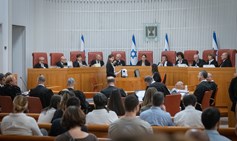
The Supreme Court Ruling on Canceling the Reasonableness Clause—Implications
Written By: Dr. Amir Fuchs
The Supreme Court ruled that the Court has authority to perform judicial review on Basic Laws, and that an intervention was necessary in the case of the amendment to the Basic Law: The Judiciary revoking the Standard of Reasonableness. What are the implications?

Explainer: Civilian Defense Squads in Urban Settings
Written By: Adv. Mirit Lavi, Dr. Yael Litmanovitz
In recent weeks, since the outbreak of the war in Gaza, some 800 new civilian defense squads have been set up throughout Israel. Each squad consists of local residents who serve as civilian operational reserve forces, available for rapid deployment to assist national security forces during security events and emergency situations.

Enough with the Censorship?
Written By: Dr. Guy Lurie, Dr. Tehilla Shwartz Altshuler
Attempts by the Prime Minister to influence the Chief Censor may indicate a concerning erosion of the Military Censor’s independence and professionalism. Clearly, state secrets must be protected, especially during war, but there are better ways for this to be accomplished, more suited to a democratic state.

Israel's Irresponsible Expansion of Eligibility for a Handgun License
Written By: Adv. Mirit Lavi
Israel's new firearms regulations now allow hundreds of thousands of citizens to carry handguns, without the necessary checks or oversight. They have been passed too rapidly during the current emergency, without enough thought about the dangerous consequences of dramatically expanding eligibility for a handgun license.
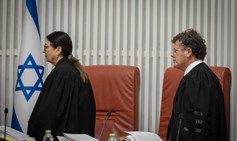
Israel needs a strong supreme court now more than ever
Written By: Dr. Guy Lurie
Justice Hayut's retirement from the presidency of the Supreme Court was well-known in advance, however, the Minister of Justice's refusal to convene the Judicial Selection Committee leaves Israel with a temporary replacement during a national emergency.

Special State of Emergency in Israel’s Court System
Written By: Dr. Guy Lurie
What is a special state of emergency and who declares it?
Minister of Justice Levin declared a "special state of emergency" on October 7th, which has since been extended and is currently valid until October 20th. How does this affect the justice system in Israel?
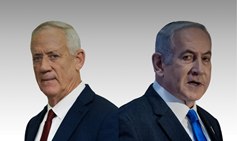
The Case for a Lean, Unified Wartime Cabinet
Written By: Prof. Amichai Cohen
The main demand made by Benny Gantz, chair of the National Unity party, for entering an emergency government is the establishment of a war cabinet. Why is this important and what would the powers of a war cabinet be?
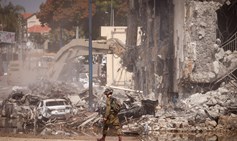
Israel at War: Special Situations and Emergency Events
Written By: Prof. Amichai Cohen, Adv. Mirit Lavi
The government has once again declared a "special home front situation" as the war in the north intensifies. What does this mean?
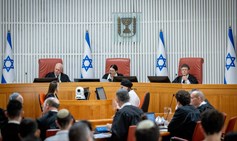
The Supreme Court Hearing on the Incapacitation Law
Written By: Dr. Amir Fuchs
The Supreme Court hearing on September 28th, 2023 will focus on the question of whether the amendment should be interpreted as being valid only in the future, to remedy the perception of personal benefit for the current prime minister.
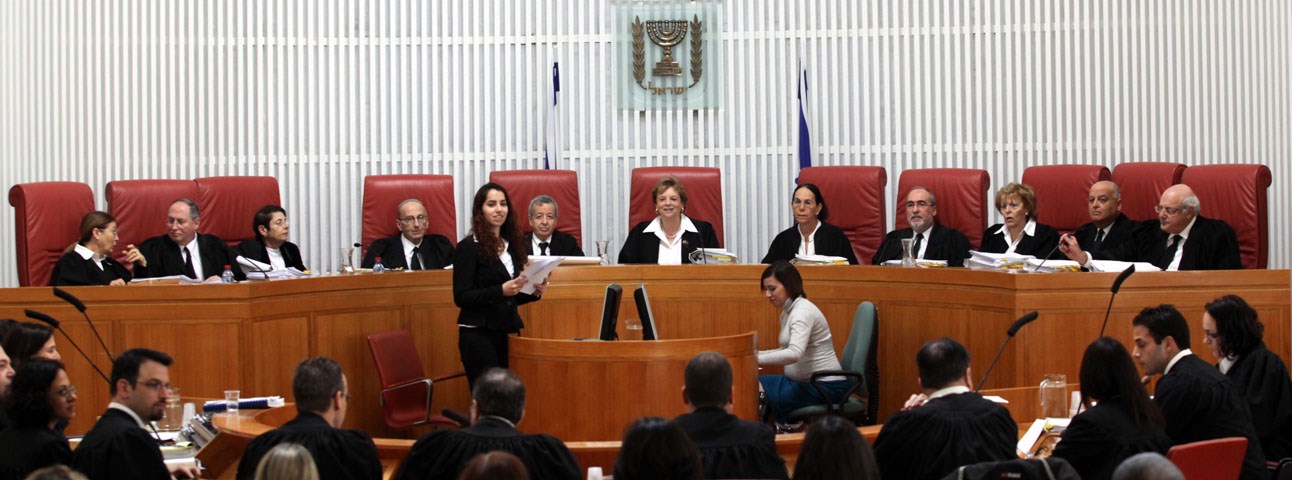
The Supreme Court Hearing on the Revocation of the Reasonableness Doctrine
Written By: Prof. Amichai Cohen
On September 12, 2023, an unprecedented panel of 15 Supreme Court Justices will convene to hear petitions requesting to strike down the recent amendment to the "Basic Law: The Judiciary."

The Judicial Selection Committee must be convened now
Written By: Dr. Guy Lurie
The Judicial Selection Committee has not met for more than a year, and during this period, various positions held by judges have been vacated.

Populism as an Existential Threat in Israel
Written By: Prof. Gideon Rahat
In an effort to create uniformity, populists are ready to destroy the state.
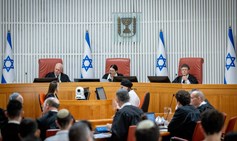
On the link between reasonableness and incapacitation
Written By: Prof. Suzie Navot,
Less than 24 hours after the Knesset passed the “Reasonableness Law” the attorney general filed her professional opinion to the Supreme Court on an entirely different matter: the “Incapacitation Law.” What do the two amendments share in common?

Protests are Necessary—But So Is Decentralization
Written By: Dr. Assaf Shapira
When Israeli liberals depend solely on the Supreme Court for checks and balances, they are taking a big risk. It is essential to add veto points as human rights in Israel should not depend on the Supreme Court alone - decentralization of government is key.

The Reasonableness Issue Requires Serious, Informed, and Consensual Discussion
Written By: Prof. Suzie Navot
Only a government that wishes to make extremist and corrupt decisions would be afraid of the reasonableness test. While the test would certainly benefit from discussion of the framing of its boundaries and application, the legislation currently on the table hands the government unrestrained power.
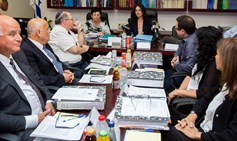
The Fight Over Judicial Appointments in Israel
Written By: Prof. Amichai Cohen, Prof. Yuval Shany
Since 1953, judicial appointments in Israel have been made through a Judicial Selection Committee in which legal professionals—judges and lawyers—are in the majority and politicians in the minority. The new Israeli government’s plans for legal reform turn this system on its head and allow the coalition to fully control appointments to all parts of the judiciary, thus consolidating its dominant position in all three branches of government.
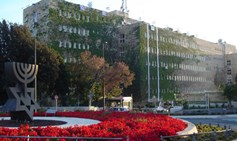
Splitting Up Ministries Will Undermine Effective Governance and the Public Service
Written By: Dr. Nadiv Mordechay
The trend to divvy up the government in political agreements has reached new heights - with detrimental impact on the ministries ability to provide high-quality service
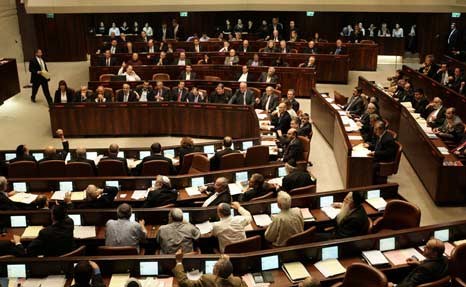
The Many Ways to Dissolve the Knesset 2022
Written By: Dr. Dana Blander
The unlikely coalition that survived thanks to the one vote has lost the parliamentary majority. Does this mean that the Knesset will disperse and new elections will be held? Dr. Dana Blander explains the different ways in which the Knesset can be dissolved and discusses the relationship between these mechanisms and government stability in a parliamentary system.
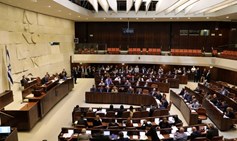
Government Unable to Manage Corona Crisis
"This fast-tracked legislation, that is intended to allow the cabinet to put further restrictions in place without approval from Knesset committees, is yet another example of chaos and an inability of the government to manage the coronavirus crisis."
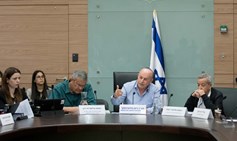
Who Will Investigate the Coronavirus Crisis?
Written By: Dr. Dana Blander
There have been calls to investigate the government’s handling of the coronavirus crisis – but who should do the investigating?
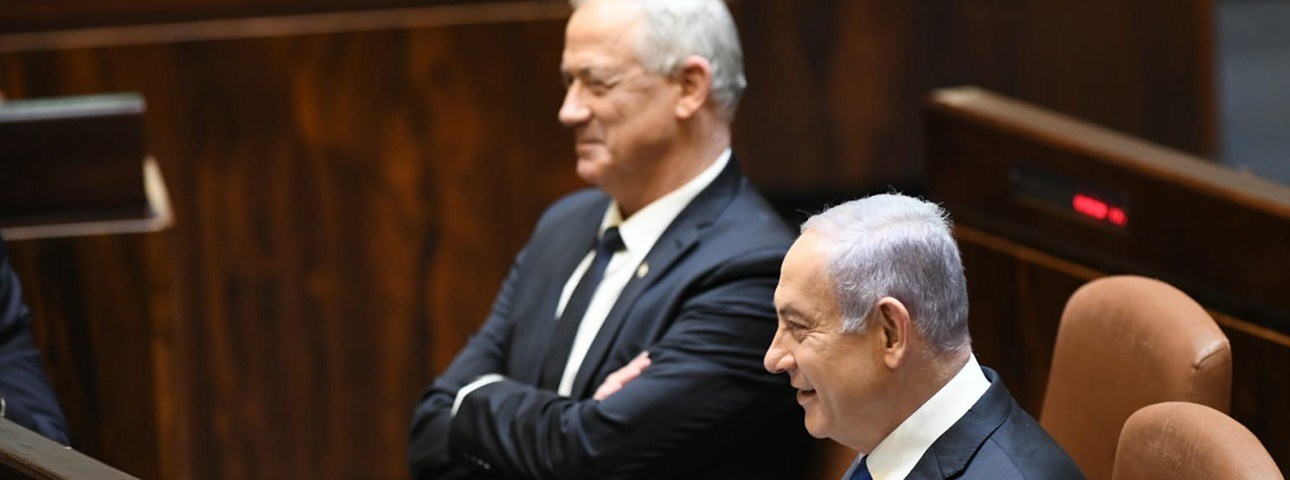
Israel’s Cease-Fire Government Should Promote Healing, Not Division
Written By: Yohanan Plesner
Netanyahu and Gantz could use their unity government to put in place a 'democratic ceasefire' and speed Israel’s economic recovery rather than entrenching political deadlock.
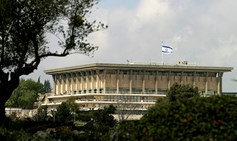
Don’t Call It a Comeback
Written By: Dr. Shany Mor
In mature democracies, parliaments are regaining their relevance in the coronavirus era.
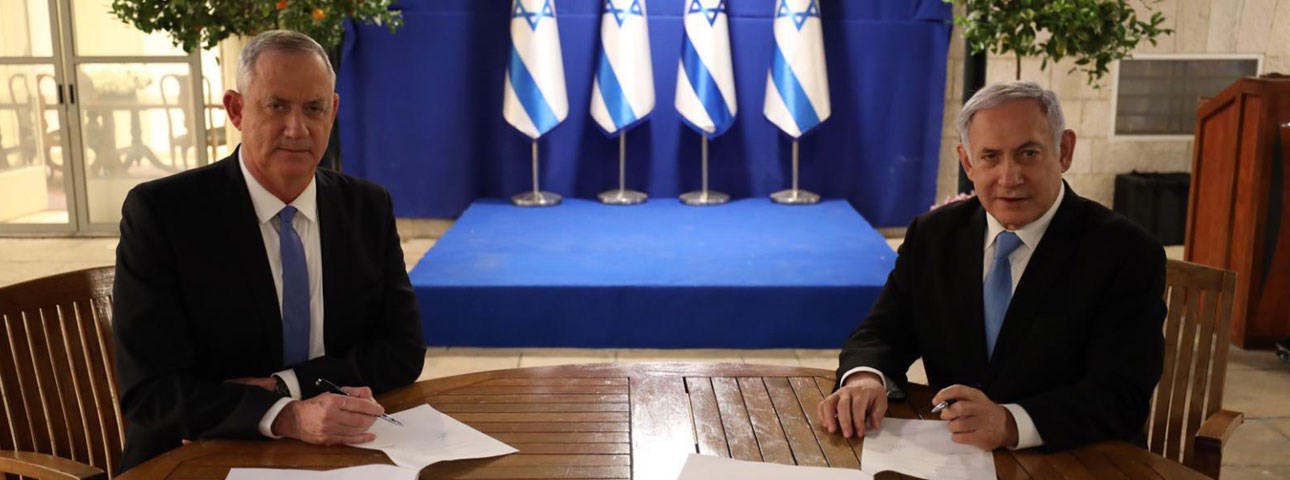
The Alternative Government
Written By: Dr. Amir Fuchs, Dr. Assaf Shapira
IDI researchers testified before the Knesset's Special Committee: Personal and retroactive changes should not be made to legislation regarding the Prime Minister's legal status

A Jumbo-Size Government? Now? Really?
Written By: Prof. Ofer Kenig
Reports of a 30 to 34 minister cabinet in the works beg for a public outcry: Costly, inefficient and divisive is not what we need today.
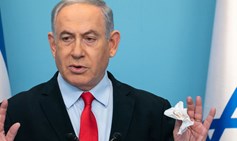
Prime Minister Netanyahu - 11 Consecutive Years
Written By: Prof. Ofer Kenig

Don’t Manage a Crisis under Threat of Investigation
Written By: Dr. Shuki Friedman
Calls for the establishment of a state commission of inquiry the day after the corona, in the midst of the crisis, can lead decision-makers to make decisions based on wrong considerations
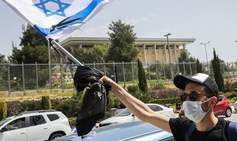
Politics in a Time of Corona
Written By: Yair Sheleg
Israel finds itself in an unprecedented political situation at a time it must face a worldwide pandemic.

The Functioning of the Knesset during the Coronavirus Emergency
Written By: Dr. Chen Friedberg, Avital Friedman, Dr. Assaf Shapira, Dr. Shany Mor
In this paper, we argue that in a public health emergency, such as the one we are experiencing now, when unprecedented means are being employed in the fight against COVID-19, the Knesset’s smooth functioning is even more essential, especially with regard to the need for strict and effective oversight of the government.

The Knesset Must Resume its Work Immediately
Just as in parliaments around the world - the Israeli Knesset must resume its work.

Convene the Knesset Plenum Without Delay - IDI Statement
IDI Statement to Knesset Speaker Yuli Edelstein: Convene the Knesset Plenum without delay; failure to do so blatantly exceeds the bounds of your office and constitutes an unacceptable disregard for basic rules of democracy

Private Member Bills: A Review and Recommendations
Written By: Dr. Chen Friedberg
Since the early 2000s, we have seen an unusual rise in the number of private member bills submitted to the Knesset

Israel 2050: A Strategic Plan for a Thriving Economy in a Sustainable Environment
Written By: Daphna Aviram-Nitzan, Erez Sommer
The Impact on Quality of Life in Israel: Executive Summary

No Female Pilots in IDF? – Get Over it!
New IDI Campaign to Warn Against Attempts to Decimate Supreme Court and Grant Unlimited Power to Politicians
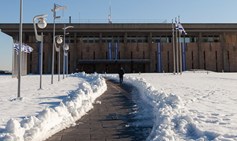
A Knesset in the Deep Freeze
Written By: Dr. Chen Friedberg
Those who are not familiar with the Knesset’s day-to-day activities may mistakenly believe that it normally functions efficiently.
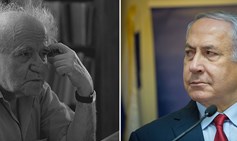
BB > BG
Written By: Prof. Ofer Kenig
On July 19th 2019, Netanyahu’s total days in office as Israel’s prime minister equals Ben-Gurion’s and on July 20th he will hold the title of the Israeli prime minister with the longest term in office. This also will make him the third most 'veteran' leader among the OECD countries.
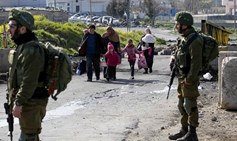
State of Emergency in Israel: Is It Really Necessary?
Written By: Adv. Lila Margalit
The Knesset once again renewed the declaration of a state of emergency. This practice has been around since the establishment of the State - is it still necessary?
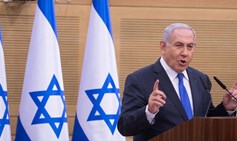
We the People: Democracy in the Age of Populism
Written By: Prof. Yuval Shany
Populism means different things to different people – and political populism has an even more sinister meaning

Revoking Limitation on Number of Ministers - Ramifications
It wastes public funds, impairs government efficiency, and hinders its capacity to promote policy

Time to Reform the Electoral Process
Written By: Prof. Gideon Rahat
What reforms are necessary to repair the electoral process to improve governance? Prof. Gideon Rahat sits down to discuss the upcoming elections with David Schulberg from the Israel Connexion in Australia
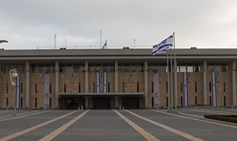
Will 2019 Be the Moment of Truth for Israeli Democracy?
Written By: Yohanan Plesner
Will Israel's democratic institutions prove resilient? How is the party system changing and is Israel headed for a tyranny of the majority? Yohanan Plesner, President of the Israel Democracy Institute, examines the ramifications of the unprecedented indictment of an incumbent Prime Minister in Israel

Why Are There so Many Political Parties, and Why Does This Fragmentation Obstruct Governance?
Written By: Prof. Gideon Rahat
“The current system grants small parties disproportionate power, leads to excessive preoccupation with coalition management, does not provide strong incentives for creating an effective opposition, and leads to the allocation of over-sized budgets to sectoral interests. We need to create a system of incentives which will solidify the political system into two main blocs.” says Prof. Gideon Rahat
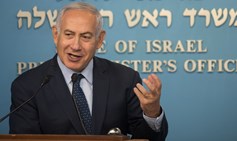
The Illusion of Political Stability
Written By: Prof. Ofer Kenig
Despite a solid decade with the same prime minister, other cabinet posts have switched hands at alarming rates.
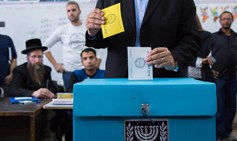
Israeli Politics Fractured: The System Needs Fixing
Written By: Prof. Gideon Rahat
It is commonly accepted that in order to defeat Netanyahu, the political parties in the center and on the Left must unite and present a single and clear alternative. However, under the current system, this claim is simply not true.
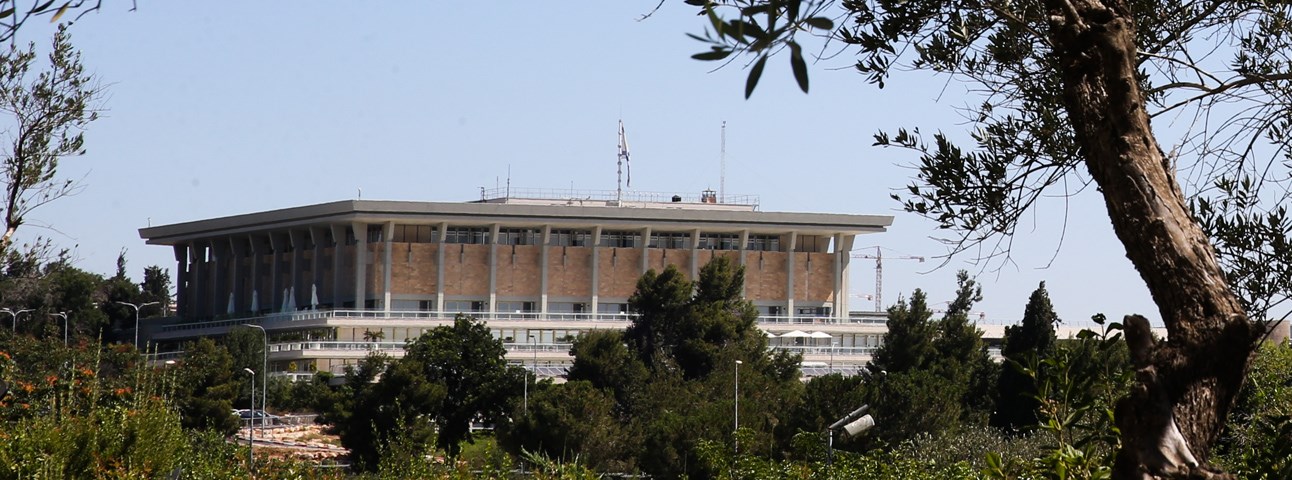
Israeli Democracy at 70
Written By: Adv. Alona Vinograd
Israel at 70 is still a thriving democracy, but current concerns are justified, says Alona Vinograd in an interview to Fathom.
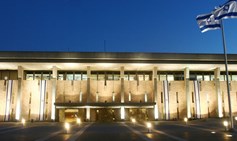
Parliamentary Work Index for Israel’s Political Parties
Written By: Dr. Assaf Shapira, Avital Friedman, Dr. Shahaf Zamir
A Special Analysis by the Israel Democracy Institute on which MKs make the most use of the parliamentary tools available to them.
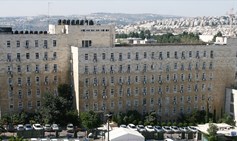
The Attack on Legal Oversight Threatens Us All
Written By: Prof. Yedidia Z. Stern
Government-sponsored legislation proposing to change how ministry legal advisors are appointed has stirred up quite a storm. The idea should worry all of us, not only jurists.
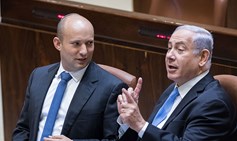
Who will be Overridden by the “Override Clause”?
Written By: Yohanan Plesner
The good news is that despite the unprecedented offensive which aims at dealing a significant blow to the Supreme Court, the majority of the Israelis still have trust in this institution. In fact, the levels of trust in the court are much greater than those of the Knesset and the Government

The Democracy Pavilion
After months of preparation, we are proud to inaugurate, along with the Tel-Aviv-Yafo Municipality, the Democracy Pavilion, celebrating 70 years of Israel’s independence. A unique multi-media experience, in full 360-degree technology, showcasing the values embedded in Israel’s Declaration of Independence and the historic highlights of 70 years of independence.

IDI Presents Outstanding Parliamentarian Award to MKs Elharar and Folkman
Knesset Speaker MK Yuli Edelstein: "It's time to bring the rules of the game back to the Knesset

Leviathans, Minnows and the Rule of Law
Written By: Prof. Yedidia Z. Stern
“Pray for the welfare of the government. For if it were not for fear of it, one man would swallow his fellow alive (Avot 3:3).”

How Israeli Society Has Changed Since The Six-Day War
Written By: Yohanan Plesner
Polling data finds that far more Israelis distrust their leaders today than in 1967.
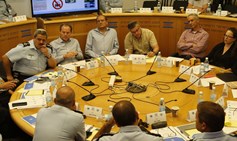
Police-Society Forum
Police-Society Forum convenes at IDI to discuss issues related to law, order and enforcement among Israeli citizens

Knesset Proposal to Impose Sanctions on Non-Attendance at Parliamentary Committee Meetings:
IDI scholar recommends adopting a proposed amendment to Basic Law: The Knesset, aimed at penalizing Knesset committee members who are invited to testify or submit information but do not comply.

Democracy at Risk
Written By: Prof. Mordechai Kremnitzer
Citizens must lead the way in the battle against political corruption.

Jerusalem Report: Welcome to 21st Century Politics
Written By: Elli Wohlgelernter
Poorly funded and under threat from personalization and social media, political parties are in decline.

Turning Back the Tide
Written By: Yohanan Plesner
To tackle the crisis of democracy we must restore the public's faith in its governing institutions.

Israel Exemplifies Rise of Personalized Politics
Written By: Prof. Gideon Rahat
Donald Trump’s surprise win seems to illustrate the awesome power of the Internet-savvy individual in politics.

Status of Women in Israeli Politics: The Good, The Bad and The Road to Full Equality
Written By: Prof. Ofer Kenig
The impressive increase of women's representation in the Knesset has not translated into similar strides in other political spheres and senior executive positions.
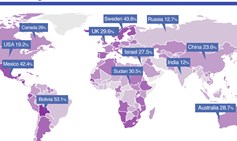
Women in Politics: 2017
There has been a substantial increase in the amount of women serving as Ministers of the Knesset since 1999.
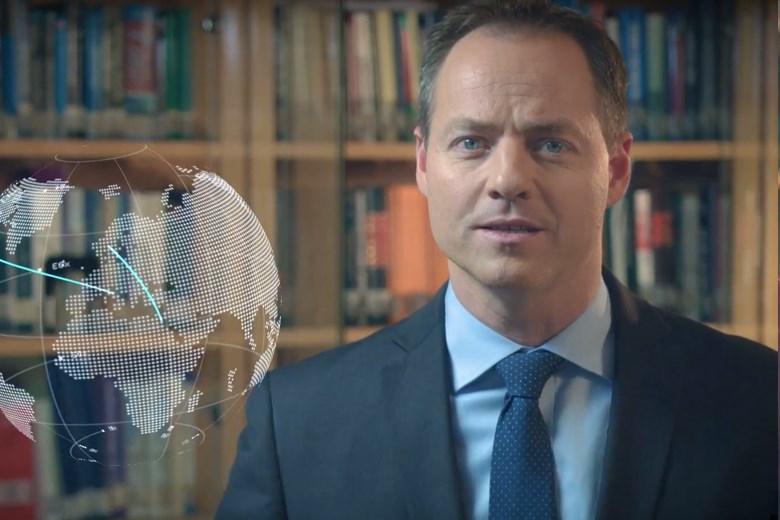
Ensuring a Vibrant Democracy
Written By: Yohanan Plesner

Innovation was the Epic Fail of 2016
Written By: Dr. Tehilla Shwartz Altshuler
In Israel, we talk a lot about innovation. But what does the term really mean?

The Future of Israel’s Political Parties is on Facebook
Written By: Yohanan Plesner
Harnessing the power of readily available technological tools to promote political engagement and revitalize intra-party democratic practices is essential for strengthening party institutions and restoring the public’s faith in government.

Start-up Nation Central, the Israel Democracy Institute and the Israel Innovation Authority Praise the Government’s Decision to Increase Governmental Interoperability as an Important Step for the Israeli Civil Service
The Israel Democracy Institute (IDI), the Israel Innovation Institute (III) and Start-up Nation Central (SNC) said the government’s recent decision to approve implementing new and innovative interoperability strategies is an important step that could lead to a major breakthrough.

Gotta Have Faith: The Knesset's Top Priority for 2017
Written By: Yohanan Plesner
The Knesset’s top priority for 2017 should be to restore the Israeli public’s belief in its political institutions.
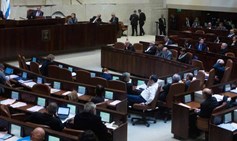
The Israel Democracy Institute Ahead of Deliberations on the V-15 Bill
Ahead of Wednesday’s (January 4) deliberations on the changes in the V-15 Bill, scholars from the Israel Democracy Institute (IDI) sent a letter to members of a joint committee of the Knesset’s House and Law Committees calling on them to amend the bill significantly.

New Record! Netanyahu Now Longest Continuously Serving Israeli Prime Minister
Written By: Prof. Ofer Kenig
As of November 22, 2016, Benjamin Netanyahu will have occupied the Prime Minister’s Office for 2,793 days in a row, thereby surpassing David Ben-Gurion for the longest continuous tenure as premier in Israeli history.
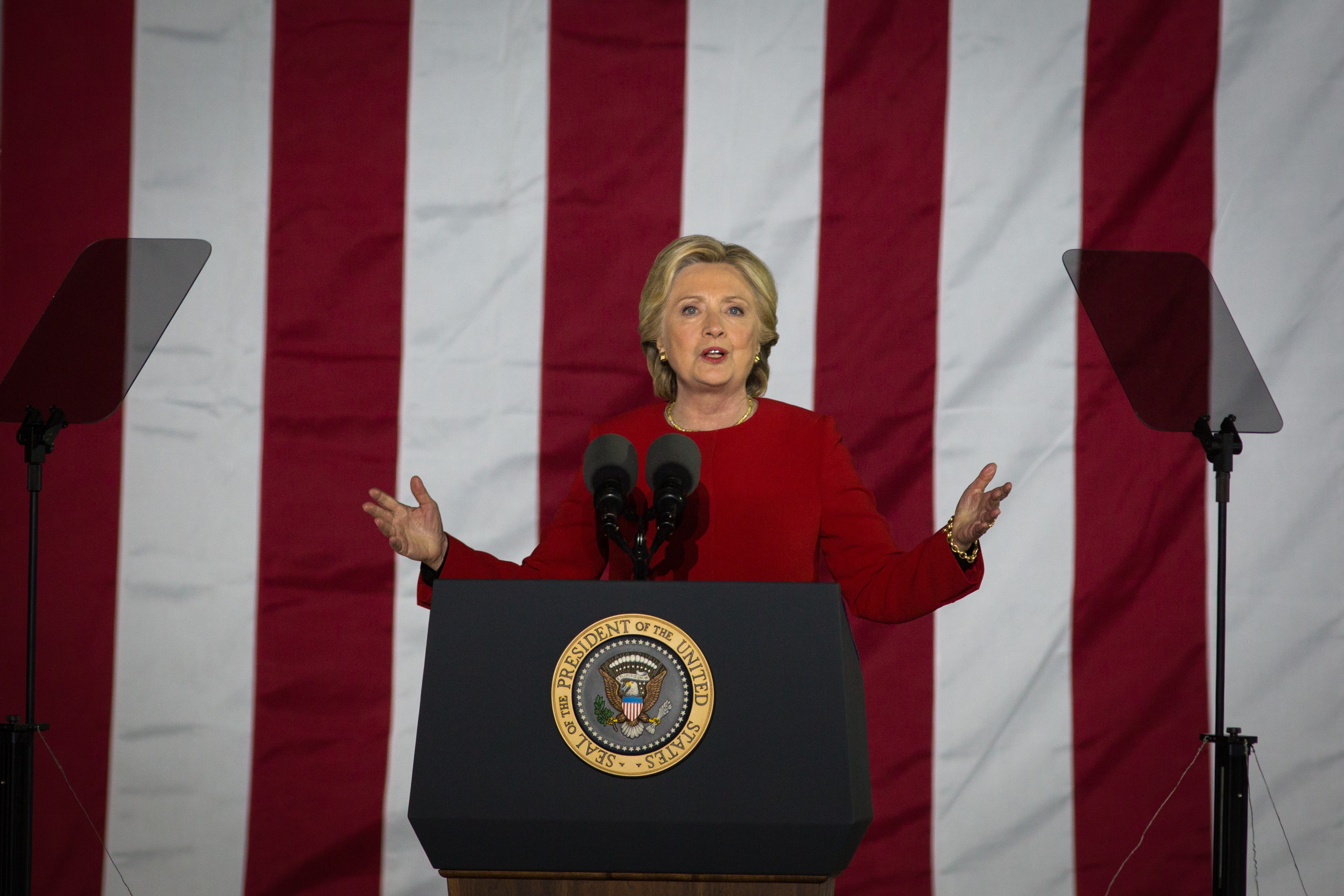
Israelis Believe Clinton will Push them Harder on Peace, Back Her Anyway — Poll
Written By: Marissa Newman
Israelis may have given up for now on peace, but still want peace talks. Arab Israelis are more optimistic than their Jewish counterparts about state’s future.

No Way to Run a Democracy
Written By: Yohanan Plesner
IDI President Yohanan Plesner argues that electoral reform will not suffice to fix the short-term-ism that is destroying Israel's capacity for long-term planning and policy execution; reform of the internal processes of the parties themselves is required. This op-ed first appeared in the Jerusalem Report.

The Trump Phenomenon: Israeli Politics in the 'Age of Me'
Written By: Prof. Gideon Rahat
Love him or hate him, Donald Trump’s once unthinkable ascension became a reality earlier this month, following a largely drama-free roll call vote on the Republican National Convention floor. Trump is a prime example of a candidate whose vision and ideas are not a direct reflection of his party's values and policies, and who, in many ways, battled his way to the top of the party. His nomination is just one example of a current trend toward political personalization, a process in which the influence of individual leaders in the political process has increased, as the centrality of the political group declines.

What Might Jabotinsky Say About the Actions of the 20th Knesset?
Written By: Dr. Amir Fuchs
Some 76 years ago, on August 4, Ze'ev Jabotinsky, one of the most prominent Zionist thinkers and leaders, founder and head of the Revisionist movement, Betar youth group and the Irgun paramilitary organization, died prematurely. It is interesting to explore his views on matters related to democracy and liberalism.

Are Open Primaries the Answer?
Written By: Prof. Ofer Kenig
The volatile Israeli party system, together with several recent political developments, lately brought the idea of holding open leadership primaries to Israel. However, when considering the adoption of open primaries, one must also take into account their potential challenges and dangers.

Netanyahu’s East Africa Visit: Negotiating Away Israel’s ‘Unwanted’ Asylum-Seekers
Written By: Dr. Ruvi Ziegler
Earlier this month, Prime Minister Benjamin Netanyahu concluded a visit to East Africa. Uganda is doubly symbolic in collective Jewish-Israeli memory. In 1903, the ‘Uganda proposal’ put the territory forward as a supposedly alternative site for Jewish self-determination; the Zionist Congress rejected it. And Uganda was also the site of the Entebbe raid on 3-4 July 1976, when an Israeli commando squad rescued 103 civilians being held hostage after a plane was hijacked en route from Israel to France.

Britain's Referendum: Democracy at its Finest or Crass Populism?
Written By: Dr. Dana Blander
In Britain, nationwide referendums are a rare event. This development highlights an issue that many of today's democracies are struggling with: the ongoing tension between direct and representative democracy. Is a national referendum a shining example of the democratic ideal put to practice, or does it represents deterioration to cheap populism?
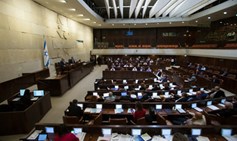
MK Suspension Bill: Anti-Democratic to the Core
Written By: Dr. Amir Fuchs
Last week, the Knesset Law, Constitution and Justice Committee began deliberating over a proposal that would fundamentally alter the Basic Law – The Knesset: The MK Suspension Bill. If passed, the proposed bill would grant members of Knesset the power to remove another parliamentarian. This op-ed originally appeared in the Jerusalem Post.

The Cabinet in (com)Motion
May 14 marked the one-year anniversary of the fourth Netanyahu government. According to IDI researcher Dr. Ofer Kenig, "it is safe to say this cabinet has broken a record for internal instability."

The Road to Better Governance
Written By: Yohanan Plesner
The start-up nation owes it success to the democratic system of government established by its founders. Israel’s liberal democracy not only unleashes the creative talents of individual Israelis, it fosters a business environment favorable for the establishment of companies with disruptive potential on a global scale. However, Israel’s continued success should not be taken for granted. Indeed, there are a number of signs that Israeli governance may be weakening.

Campaign Financing in Israel
Written By: Dr. Assaf Shapira
A discussion of the principal issues pertaining to campaign financing in Israel, written before the Knesset elections of 2015.

With Approval Of Mandelblit: Time to Consider Shortcomings of Outgoing Weinstein
Written By: Dr. Guy Lurie
As Israel gets ready to transition to its new Attorney General Avichai Mandelblit, now is a good time to ask ourselves: Was Yehuda Weinstein a good Attorney General? An opinion piece by Guy Lurie, which originally appeared in the Jerusalem Post.
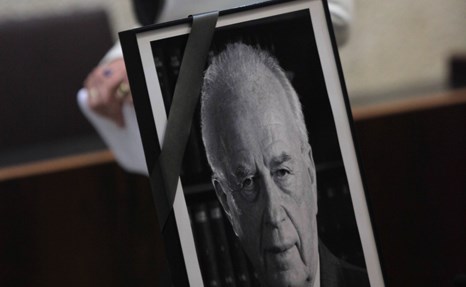
Only As a Democracy Will We Win
Written By: Yohanan Plesner
IDI President Yohanan Plesner says that even after 20 years, the assassination of former Prime Minister Yitzhak Rabin remains the Israeli democracy's breaking point. He calls on all peoples and their leaders to develop a joint democratic vision.

Criteria for Evaluating the Success of the Israeli Attorney General
Written By: Dr. Guy Lurie, Prof. Mordechai Kremnitzer
In an article in The Marker, Prof. Mordechai Kremnitzer and Dr. Guy Lurie recommend ways of ensuring that the performance of the Israeli Attorney General is evaluated on a regular and systematic basis.
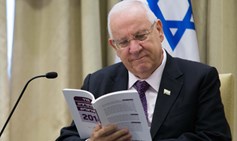
Rivlin Under Fire
Written By: Dr. Amir Fuchs
Ever since he was elected, President Reuven Rivlin has been under attack from the extreme right wing in Israel. Why should a right-wing President be under attack from the right? IDI Researcher Dr. Amir Fuchs explores the origins of the animosity towards Israel's liberal, right-wing President.
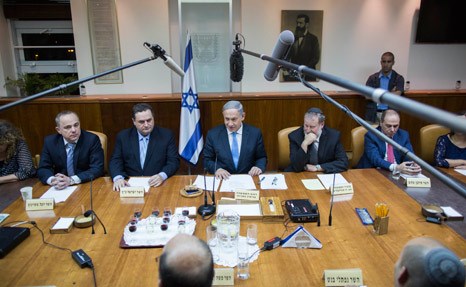
Israel's 34th Government: A Profile
Written By: Prof. Ofer Kenig
On May 14, 2015, the 34th government of the State of Israel—the fourth Netanyahu cabinet—was sworn in. In this article, IDI Researcher Dr. Ofer Kenig presents an overview of the process of forming the government and the profile of its members.

Don't Increase the Number of Cabinet Ministers
Written By: Prof. Ofer Kenig
Dr. Ofer Kenig argues that amending the clause of the Basic Law that limits the number of ministers in the next government to 19 is not only unnecessary, but also brings about a sense of déjà-vu that the Knesset is defying the rules of the game once again.

The Elephant in the Room: Relations between Religion and State in Israel
Written By: Prof. Yedidia Z. Stern
Prof. Yedidia Stern urges Israel's leaders to stop tiptoeing around the core issues of religion and state in the Knesset election campaign, and to take a clear position on the matter.

New Partners in the Struggle Against Terrorism
Written By: Prof. Yedidia Z. Stern
Yohanan Plesner argues that as Denmark grieves for a terror attack on its soil, Israeli leaders must broadcast "a message of partnership among democracies battling terrorism without sacrificing their democratic values."
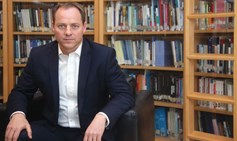
The Researched-based Responses to Troublemaking MKs
News from the Knesset in the last week raises myriad questions about democracy, and Israel Democracy Institute president Yohanan Plesner tries to provide answers.

Israel's Central Elections Committee: Political Cabal or Independent Agency?
Written By: Dr. Dana Blander
IDI Researcher Dr. Dana Blander discusses the role of Israel's Central Election Committee and asserts that change is needed in its structure, composition, and working methods.

The Electoral Threshold, Wasted Votes, and Proportionality
Written By: Prof. Ofer Kenig
In the upcoming elections, the electoral threshold will be 3.25%, a big leap from the last elections. Will this higher hurdle deter voters from supporting small parties? Will it reduce the share of wasted votes? What impact will it have on the proportional nature of the electoral system?

23 Knesset Seats is Not a Victory
Written By: Yehoshua Oz
In an op-ed in the Jerusalem Post, Yehoshua Oz, IDI's Director of International Communications, argues that pundits eager to crown a victor in the 2015 elections have lost sight of the fact that winning one-fifth of the Knesset seats is no victory.
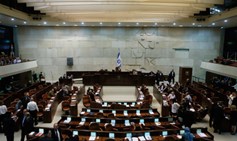
How to Prevent the Recurrence of Early Knesset Elections
Written By: Yohanan Plesner
IDI President Yohanan Plesner recommends a change of approach and some practical steps for changing the reality in which the Israeli public repeatedly goes to the polls to elect a new Knesset before the previous Knesset has finished its term.

The Firing of Ministers in Israel: A Historical Overview
Written By: Prof. Ofer Kenig
The demise of the 19th Knesset was hastened by Prime Minister Benjamin Netanyahu's firing of Finance Minister Yair Lapid and Justice Minister Tzipi Livni. In the article below, IDI researcher Dr. Ofer Kenig discusses the various grounds for firing ministers in the past and how the current case fits into Israeli political practice.

Democracy: The Key Election Issue
Written By: Prof. Mordechai Kremnitzer
In an op-ed in Maariv, IDI Vice President Prof. Mordechai Kremnitzer calls for an election campaign that focuses not only on foreign policy and Israel's social gap, but on the nature of Israeli identity and the value of Israeli democracy itself.

Banning Arab Workers: A Hypocritical Condemnation
Written By: Dr. Amir Fuchs
The mayor of Ashkelon's announcement following the massacre in a Har Nof synagogue that Arab workers would not be employed in his city was roundly condemned by members of the Knesset. Dr. Amir Fuchs points to the hypocrisy of these condemnations.

10 Reasons Why Even People Who are Appalled by Israel Hayom Should Oppose Legislation against It
Written By: Hanoch Marmari
Hanoch Marmari, former editor of Haaretz and current editor of The Seventh Eye, an independent on-line journal dedicated to critique of the media, defends <em>Israel Hayom</em>'s right to exist as a free newspaper, notwithstanding his professional qualms about the quality of its journalism.

Confronting the Rabin Assassination
Written By: Prof. Mordechai Kremnitzer
Nineteen years after the murder of Prime Minister Yitzhak Rabin, IDI Vice President Prof. Mordechai Kremnitzer explores the background, meaning, and ramifications of this event, taking a hard look at some of the dangers he sees in Israeli society today.

Legal Opinion on the "Zoabi Bill"
Written By: Prof. Mordechai Kremnitzer, Dr. Amir Fuchs
A summary of a legal opinion on a proposed amendment to Basic Law: The Knesset that was submitted by Prof. Mordechai Kremnitzer and Dr. Amir Fuchs to the Ministerial Committee on Legislative Affairs.

Joining Together to Remember Yitzhak Rabin
Written By: Benjamin (Benny) Lau
On the 19th anniversary of the Rabin assassination, Rabbi Dr. Benjamin (Benny) Lau, head of IDI's Human Rights and Judaism in Action project, looks at the youth of Israel and shares a vision of hope.

Israeli Democracy Day: Yitzhak Rabin's Legacy for the Future
Written By: Prof. Yedidia Z. Stern
On the 19th anniversary of the assassination of Yitzhak Rabin, Prof. Yedidia Stern asserts that if the annual memorial day for the late prime minister were to be observed as Israeli Democracy Day, Rabin's legacy for the future would be even greater.

Adviser or Prosecutor? Israel's Attorney General Can't be Both
Written By: Prof. Yedidia Z. Stern
IDI Vice President Yedidia Stern asserts that there is a conflict of interest between the Attorney General’s two functions—as State Attorney and State Prosecutor—and the office must be split in two.
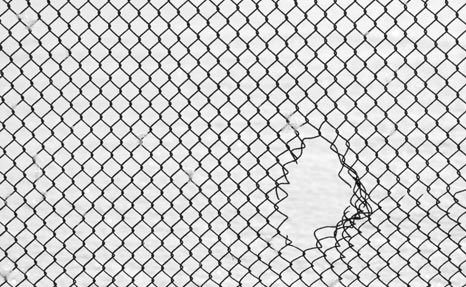
Overriding the Supreme Court: A Breach in the Wall of Democracy
Written By: Dr. Amir Fuchs
Dr. Amir Fuchs discusses the proposal to add an override clause to Israel's Basic Law: Human Dignity and Freedom that would enable the Knesset to bypass the High Court and deal a a severe blow to the main safeguard of human rights and minorities in Israel.

Transparency in Local Authority Budgets
Written By: Dr. Tehilla Shwartz Altshuler
Dr. Tehilla Shwartz Altshuler discusses the challenges to transparency in the budgets of Israel's local authorities, including the need to make budgets accessible, to enable searches within budgets, and to facilitate comparisons between the budgets of different authorities.
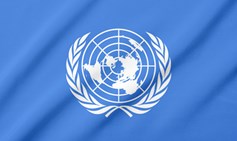
A Betrayal of International Law
Written By: Prof. Mordechai Kremnitzer
In a Jerusalem Post op-ed, Prof. Mordechai Kremnitzer argues that by breaching their responsibility to be impartial, the UN Human Rights Council and its commission for investigating alleged war crimes in Gaza are betraying international law, even if unintentionally.
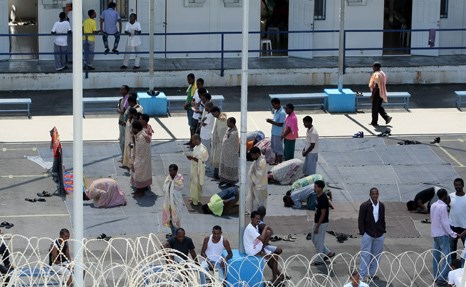
Second Strike and You Are (Finally) Out? The Quashing of the Prevention of Infiltration Law (Amendment No. 4)
Written By: Prof. Reuven (Ruvi) Ziegler
IDI Researcher Dr. Reuven (Ruvi) Ziegler presents a brief overview of the Israeli High Court of Justice's decision to strike down Amendment No. 4 of the Prevention of Infiltration Law, and explores several themes that may be of comparative constitutional interest.

Shmita: Rest, Share, Release
Written By: Prof. Yedidia Z. Stern
An exploration of the existential, social, and economic dimensions of the Shmita year, that calls for bringing together social, moral, cultural, religious and national forces to implement the idea of Shmita in non-agricultural and national contexts in Israel.

ISIS: Is the Islamic State Really a State?
Written By: Prof. Yuval Shany, Prof. Amichai Cohen, Adv. Tal Mimran
What criteria must the caliphate of the Islamic State meet in order to be considered a State under international law? This article presents an analysis of this question by IDI experts on terrorism and democracy.

Why Israel Should Fight with One Hand Tied Behind Its Back
Written By: Yohanan Plesner
In an op-ed in <em>The Jerusalem Post</em>, IDI President Yohanan Plesner stresses that Israel's adherence to international law is not a source of weakness, but rather one of its greatest strengths.

On Operation Protective Edge, Justice, Law, and Victory
Written By: Admiral (Res.) Amichay (Ami) Ayalon
Admiral Ami Ayalon asserts that the winner of today's wars is the side whose story is perceived as just, and argues that without a diplomatic track, Israel cannot win the war, even if the war is justified and Israel adheres to international law in the face of terrorists who violate it.

The Presidential Elections: The Rules of the Game
Written By: Prof. Ofer Kenig
Who elects the president? What are the candidacy requirements? What majority is needed to win the election and how is it obtained? Dr. Ofer Kenig explains some of the basics.
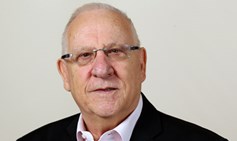
The Presidency: The “Additional Soul” of Israeli Democracy
Written By: Reuven Rivlin
Former Speaker of the Knesset MK Reuven (Ruby) Rivlin shares his views on the importance of the institution of the Israeli presidency, as part of an exclusive IDI series of articles by the presidential candidates of 2014.
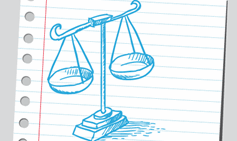
Basic Law: Israel as the Nation State of the Jewish People – A Danger to the Zionist Enterprise
Written By: Dr. Amir Fuchs, Prof. Mordechai Kremnitzer
In an article in the Hebrew weekly <em>Makor Rishon</em>, Prof. Mordechai Kremnitzer and Attorney Amir Fuchs argue against the current initiative to pass Basic Law: Israel as the Nation State of the Jewish People, which they see as divisive and problematic.

Price Tag Attacks: Racist Crimes
Written By: Dr. Amir Fuchs
In an article in <em>Haaretz</em>, Attorney Amir Fuchs stresses the need to wage a genuine war against racism, in order to preserve the values of Zionism and safeguard the Jewish and democratic state.
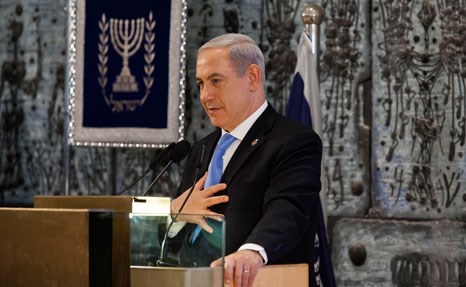
Abolish the Presidency? Certainly Not This Way
Written By: Prof. Ofer Kenig
Dr. Ofer Kenig responds to the initiative to abolish the presidency and emphasizes that such decisions require due consideration and cannot be taken as part of a capricious move that tramples on the democratic rules of the game.

The Leading Candidate for President: "I Don't Know"
Written By: Mr. Chanan Cohen
Two months before the elections for president of Israel, who does the Israeli public see as the most suitable candidate for the job? Find out in this mini-survey from IDI's Guttman Center.

The Presidency in Israel as a Unique Challenge
Written By: Dan Shechtman
An article by Nobel Prize laureate Prof. Dan Shechtman, which was written as part of an IDI project in which the candidates for President of Israel share their views on the presidency and discuss what they would bring to the job.
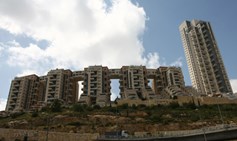
The Struggle against Government Corruption
Written By: Prof. Mordechai Kremnitzer
In an op-ed in <em>Haaretz</em>, Prof. Mordechai Kremnitzer discusses government corruption in Israel and the implications of the Holyland verdict for deterring such corruption in the future.

Nothing is Known Yet: Public Opinion on the Israeli Presidential Race
Written By: Mr. Chanan Cohen
Although the presidential race is heating up, the public does not seem to be particularly interested in it. What do Israeli citizens know about the race? Who is their candidate of choice? Find out in this mini-survey by the Guttman Center for Surveys.
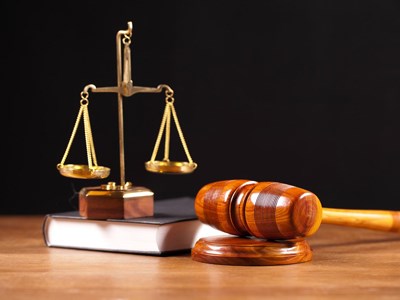
Only a Constitution will Ensure Good Governance in Israel
Written By: Dr. Amir Fuchs
IDI researcher Attorney Amir Fuchs asserts that the only way for Israel to ensure good governance is by adopting a constitution.
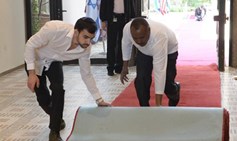
The Presidential Elections: A Political Race for a Ceremonial Position?
Written By: Prof. Ofer Kenig
As Israel approaches the election of its 10th president, Dr. Ofer Kenig surveys the results of past presidential elections and asserts that although the role of the Israeli president is largely ceremonial, the race for the position is partisan and political.
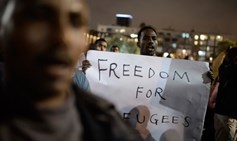
The Prevention of Infiltration Act in the Supreme Court: Round Two
Written By: Prof. Reuven (Ruvi) Ziegler
IDI researcher Dr. Reuven (Ruvi) Ziegler explains why he believes the Supreme Court should overturn Amendment No. 4 of the Prevention of Infiltration Act just as it invalidated its predecessor.
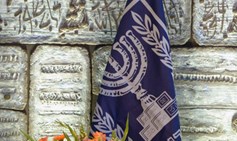
The Israeli Presidency: Unnecessary Institution or Vital Symbol?
Written By: Dr. Dana Blander
As the 2014 presidential election draws near, once again there have been calls to do away with the institution of the presidency. Is the President of Israel an unnecessary position or a vital symbol? IDI researcher Dr. Dana Blander analyzes the two sides of this question.
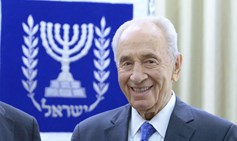
Israeli Public Opinion on the President and the Presidential Elections
Written By: Ella Heller
As the elections for the tenth President of Israel near, IDI researcher Ella Heller of the Guttman Center for Surveys presents an analysis of Israeli public opinion regarding the desired professional background for the next president of Israel, and how the elections should be conducted.

On Leadership and Responsibility: The Lessons of the Purim Story
Written By: Shira Ruderman, Benjamin (Benny) Lau
Rabbi Dr. Benny Lau and Shira Ruderman, Israel Director of the Ruderman Family Foundation, share thoughts on the Purim story, leadership, responsibility, and repair of the world.

Who is Responsible for Finding a Solution to the Plight of Mesoravot Get?
Written By: Prof. Shahar Lifshitz
Prof. Shahar Lifshitz outlines what halakhic authorities and the Knesset can do in order to resolve the issue of get refusal, as discussed at the Second Agunah Summit.

The Electoral Threshold: Why the Rush?
Written By: Prof. Ofer Kenig
In an op-ed in the Jerusalem Post, Dr. Ofer Kenig warns that while there is nothing wrong with a moderate increase in Israel's electoral threshold, increasing it from 2% to 3.25% in a single step is problematic.

The IDF and the Ultra-Orthodox
Written By: Haim Zicherman
As the Knesset prepares to vote on the "Draft Law" designed to regulate the service of ultra-Orthodox men in the Israel Defense Forces, Dr. Haim Zicherman surveys the current situation within Israel's Haredi community.
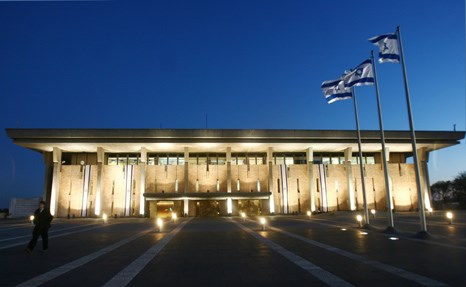
Who Will Guard the Guards?
Written By: Dr. Chen Friedberg
IDI Researcher Dr. Chen Friedberg warns that the government's prolonged inability to appoint a permanent head of the Knesset Foreign Affairs and Defense Committee may be causing serious harm to the very foundations of Israeli democracy.

Who Needs a President Anyway?
Written By: Prof. Ofer Kenig
In an op-ed in Makor Rishon, Dr. Ofer Kenig responds to calls to eliminate the institution of the presidency, and explains the value of the presidency in Israel and other parliamentary democracies.

Does Israel Need a Police Prosecution Department?
Written By: Prof. Mordechai Kremnitzer, Dr. Guy Lurie
In an op-ed in <em>Haaretz</em>, IDI Vice President Prof. Mordechai Kremnitzer and Dr. Guy Lurie call for reform that will abolish the Police Prosecution Department, leaving the Police to investigate and the Public Prosecution to bring criminal charges.

At the Starting Line: The Israeli Presidential Race Begins
Written By: Prof. Ofer Kenig
Is Prof. Dan Shechtman, who formally announced his candidacy for the 2014 presidential race in Israel, any different than traditional candidates for the position? IDI researcher Dr. Ofer Kenig surveys the characteristics of Israel's past presidents and presidential candidates.

Releasing Terrorists: An Insult to the Criminal Justice System
Written By: Dr. Amir Fuchs
In an article in <em>Haaretz</em>, attorney Amir Fuchs explains why he believes the release of convicted terrorists as part of prisoner release deals or as part of diplomatic negotiations degrades Israel's criminal justice system.

Human Rights under Attack
Written By: Dr. Amir Fuchs
IDI Researcher Attorney Amir Fuchs discusses two indirect threats to human rights in Israel: attacks on the Israeli Supreme Court and attacks against Israeli human rights organizations.

International Disabilities Day 2013: Human Rights and Judaism in Action
Written By: Benjamin (Benny) Lau
In honor of International Day for Persons with Disabilities, Rabbi Dr. Benjamin (Benny) Lau updates us on IDI's efforts on behalf of people with disabilities and reveals that people with guide dogs are now allowed to access the Western Wall.

The Referendum Law as a Metaphor
Written By: Dr. Arye Carmon
In an op-ed originally published in Haaretz, IDI Former President and Founder Dr. Arye Carmon explains his reservations about the "Referendum Bill" and warns that the concept of referendum is antithetical to the principles of democracy.

The Haredi Draft: Equality Now?!
Written By: Prof. Yedidia Z. Stern
On November 21 2013, Prof. Yedidia Z. Stern appeared before the Shaked Committee and argued that criminal sanctions are not recommended for reaching conscription goals. In an op-ed in Makor Rishon, he explains why.

The Labor Primaries: Will Shelly Yachimovich Break the Losing Streak?
Written By: Prof. Ofer Kenig
Will Shelly Yachimovich manage to succeed where others have failed and maintain her position as chair of the Labor Party for a second term? Dr. Ofer Kenig shares insights on the upcoming primaries for the party leadership.

Prof. Mordechai Kremnitzer Speaks Out on Using Administrative Detention in Cases of Organized Crime
Written By: Prof. Mordechai Kremnitzer
IDI Vice President of Research Prof. Mordechai Kremnitzer responds to the possibility that the police will use administrative detention to combat organized crime, much in the manner as it is used to combat terrorism.
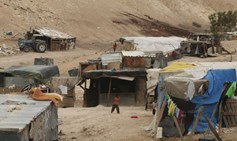
Regulating Bedouin Settlement: A Disengagement Plan for the Negev
Written By: Ronit Levine-Schnur
Ronit Levine-Schnur analyzes the Bill to Regulate Bedouin Settlement in the Negev 5773–2013, warns that it seems to be motivated by an exaggerated fear of a Bedouin takeover of the Negev, and offers an alternative approach.

On the Need for Civil Unions in Israel
Written By: Benjamin (Benny) Lau
Rabbi Dr. Benjamin (Benny) Lau expresses support for the proposed civil union bill, which would allow couples who do not want to marry in a religious service to form a legally recognized union and be eligible for the benefits and responsibilities associated with marriage.

Civil Unions in Israel as a Democratic Compromise
Written By: Prof. Shahar Lifshitz
Prof. Shahar Lifshitz, author of an IDI policy paper proposing a spousal registry as a framework for civil unions in Israel, welcomes the reintroduction of this issue to the public agenda but expresses some concern about the formulation of the current bill.

Separating the Prosecution from the Police
Written By: Prof. Mordechai Kremnitzer, Dr. Guy Lurie
Most criminal cases in Israel are prosecuted by the Israel Police rather than by the State Prosecutor. Prof. Mordechai Kremnitzer and Dr. Guy Lurie call for a division that would make the Police responsible for investigations and the State Prosecutor responsible for indictments and trials.

The Israeli Municipal Elections 2013: Some Preliminary Findings
Written By: Nir Atmor, Dr. Dana Blander, Dr. Assaf Shapira
Dr. Nir Atmor, Dr. Dana Blander, and Assaf Shapira share some preliminary findings on voter turnout and women's representation in the Israeli municipal elections of 2013.

On the Decline in Voter Participation in Municipal Elections in Israel
Written By: Dr. Assaf Shapira
Why is voter participation in local elections in Israel so low? Assaf Shapira explains the reasons behind this phenomenon, discusses its implications, and offers possible remedies.
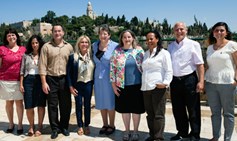
Women and Israeli Local Politics – A Natural Fit
Written By: Moran Nagid
More women than ever are running for Israeli municipal government in the local elections of 2013, but is it enough? Moran Nagid surveys the appeal of local politics for women and suggests a means of improving the situation.

Remembering Rabin: Attitudes toward Political Violence in Israel 2013
Written By: IDI Website Staff
How do Israelis feel about political violence today, 18 years after the assassination of Prime Minister Yitzhak Rabin? As Israel commemorates Rabin Memorial Day, consider the following findings of the 2013 Israeli Democracy Index.

The Israeli Democracy Index: A Periodic Check-Up
Written By: Prof. Tamar Hermann
Prof. Tamar Hermann, head of IDI's Guttman Center for Surveys, discusses the findings of the 2013 Israeli Democracy Index, which was submitted to President Shimon Peres on October 6, 2013.
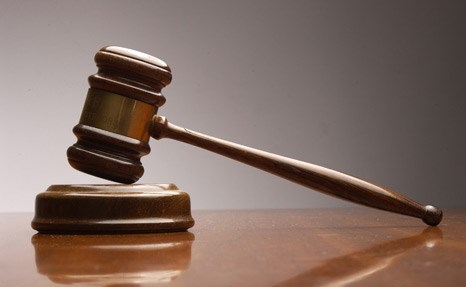
What Can We Learn about Israeli Policy Making from the Supreme Court's Ruling on the Anti-Infiltration Law?
Written By: Dr. Talya Steiner
Attorney Talya Steiner warns that a Supreme Court's judgment that struck down an amendment of Israel's anti-infiltration law as unconstitutional points to significant flaws in Israel's process of policy-making.

A Professional Assessment of the Governance Bills
Written By: Prof. Gideon Rahat
A professional assessment of proposed changes to Basic Law: The Government and the Election Bill, which was submitted by Prof. Gideon Rahat to MK David Rotem, Chairman of the Knesset Constitution, Law and Justice Committee.

The Israeli Economy: Has the Melting Pot Succeeded?
Written By: Momi Dahan
A study conducted by IDI Senior Fellow Prof. Momi Dahan that reveals that there has been a continuous narrowing of income gaps between Israelis of European-American origins and of Asian-African origins since the 1990s.

Life Under Two Suns: When Human Rights and Jewish Values Collide
Written By: Prof. Yedidia Z. Stern, Jay Ruderman
The first in a series of articles by researchers from IDI's Judaism and democracy projects and Human Rights and Judaism project on the complementary but tense relations between Judaism and democratic values.

Clearing up the Confusion on Cairo
Written By: Dr. Jesse Ferris
As the United States debates whether or not to cut aid to Egypt in the aftermath of the military-led ouster of President Muhammad Mursi, IDI Vice President of Strategy Dr. Jesse Ferris makes the case for increasing US aid to Egypt.

A Coalition of Hope
Written By: Prof. Yedidia Z. Stern
Following the elections of 2013, IDI Vice President Prof. Yedidia Z. Stern hails the incoming Knesset as a unique opportunity to change the nature of the State of Israel so that it is both more Jewish and more democratic at the same time.

Asylum Seekers in Israel: A Snapshot
Written By: Prof. Reuven (Ruvi) Ziegler
On the occasion of International Migrants Day and an IDI roundtable on Israeli immigration policy, IDI researcher Adv. Reuven (Ruvi) Ziegler provides an overview of the treatment of African asylum seekers who have crossed into Israel via its southern border.
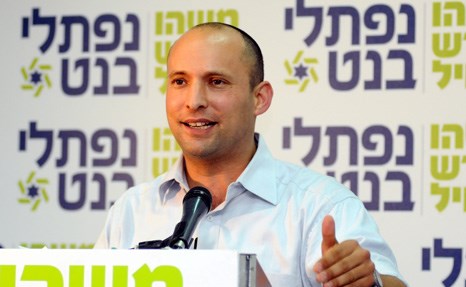
Habayit Hayehudi and Refusal of Orders: The Real Question
Written By: Prof. Yedidia Z. Stern
Naftali Bennett's statement that he would refuse orders if commanded to evacuate settlements raises questions about the type of insubordination that he and his party condone. In an op-ed in Yedioth Ahronoth, Prof. Yedidia Stern calls on Habayit Hayehudi to clarify its position on the matter.

Are Convicts Fit for Political Office?
Written By: Doron Navot, Prof. Mordechai Kremnitzer
IDI Vice President Mordechai Kremnitzer and Doron Navot, author of Political Corruption in Israel, discuss whether politicians convicted of crimes involving moral turpitude should be allowed to return to the Knesset.

Between Shamir and Ben-Gurion
Written By: Prof. Ofer Kenig
On November 10, 2012, Prime Minister Benjamin Netanyahu became the Israeli prime minister who has served the second longest cumulative term. Dr. Ofer Kenig explores Netanyahu's placement between record-holder David Ben-Gurion and Yitzhak Shamir.
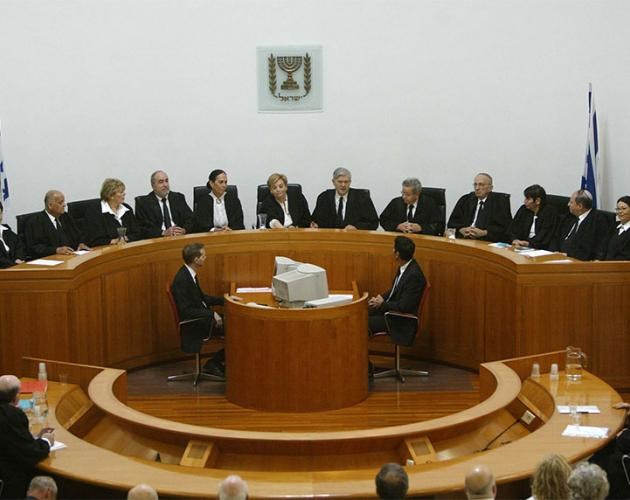
The Tal Law: Judicial Responsibility at its Best
Written By: Prof. Mordechai Kremnitzer
Prof. Mordechai Kremnitzer presents a contrasting view to Prof. Yedidia Stern's assertion that the Israeli Supreme Court's ruling on the exemption of ultra-Orthodox men from military service in Israel is "<a href="http://en.idi.org.il/analysis/articles/judicial-activism-at-its-height">Judicial Activism at its Height</a>."

A Preemptive Strike on Iran: Who has the Authority to Decide?
Written By: Eyal Tsur, Prof. Mordechai Kremnitzer
As the world considers the threat of a nuclear Iran, Israeli public discourse has focused primarily on whether or not Israel should launch a preemptive strike on Iran's nuclear facilities. But who has the authority to decide whether a military operation should be conducted? In this article, IDI Vice President Prof. Mordechai Kremnitzer and researcher Eyal Tsur explore the strengths and weaknesses of the current division of responsibility regarding this matter, and recommend ways of improving the system.

A Jewish and Undemocratic State?
Written By: Prof. Yedidia Z. Stern
The proposed "Basic Law: Israel – The Nation State of the Jewish People" has the support of one third of the members of Knesset. In this op-ed, which was originally published in Hebrew in Yedioth Ahronoth, IDI Vice President of Research Prof. Yedidia Z. Stern, who is deeply committed to the Jewish nature of the State of Israel, warns that the shift from defining Israel as a "Jewish and democratic state" to a "Jewish state with a democratic regime" is not a semantic shift, but a seismic change.

Conference Rationale
Written By: Karmit Haber
IDI's international conference "What Do Think Tanks Do?," conducted in May 2011, focused on the role and nature of think tanks in the democratic context. In this article, Dr. Karmit Haber explains the rationale behind the conference and examines the primary roles of think tanks and how they approach a variety of issues.

IDI President Dr. Arye Carmon on the Forum for Political Reform
Written By: Dr. Arye Carmon
In 2009, IDI Former President and Founder Dr. Arye Carmon established The Forum for Political Reform in Israel in response to "the urgent need to generate significant improvement in the capabilities and functioning of the Knesset." On March 28, 2011, Forum Chairman Meir Shamgar, Former President of the Israeli Supreme Court, submitted the Forum's recommendations to the Knesset. In this video interview, Dr. Carmon speaks about the Forum, its key recommendations, and obstacles to political reform in Israel.

Decade in Review: Israeli Governance in Crisis
Written By: Dr. Arye Carmon
IDI Former President and Founder Dr. Arye Carmon, one of Israel's foremost experts on political reform, sums up the Israeli political scene at the end of the first decade of the third millennium in an article that was published in collaboration with Walla!, a popular Israeli website.

Dismantling Sectarian Cities of Refuge
Written By: Prof. Yedidia Z. Stern
In an op-ed in Yedioth Aharonoth, IDI Vice President of Research Prof. Yedidia Z. Stern calls on the leaders of each "tribe"—Russian, ultra-Orthodox, settler, and upper class— to take action to eradicate the negative behavior stereotypically associated with their camp.

In Israel, Rescuing Government from Itself
Written By: Gary Rosenblatt
Dr. Arye Carmon, co-founder and president of the Israel Democracy Institute (IDI), discusses how the lack of a constitution is an internal existential threat to Israel. Dr. Carmon's approach is inclusive and integrative, including such remedies as one-ballot elections and a Constitution by Consensus.

Local Authorities: An Issue of National Importance
Written By: Shmulik Nili
Who is addressing the problematic relationship between local and national government in Israel? Is anyone designing a a comprehensive reform program to solve some of the issues that are the result of a malfunctioning system of local governance? How, if at all, does the national media deal with this issue?

National and Local Politics
Written By: Naomi Himeyn-Raisch
An examination of the development of Israeli local politics, which discusses voting patterns, citizen participation in the decision making process and political activism, as each relates to local politics.

Anti-Politics
Written By: Hila Zaban, Yuval Lebel, Prof. Tamar Hermann
Anti-politics is the aversion of citizens to political institutions and elected political figures. In this article, IDI Senior Fellow Prof. Tamar Hermann and IDI researchers Yuval Lebel and Hila Zaban survey different types of anti-politics, distinguish between anti-politics and de-politicization, and present insights about Israeli anti-politics based on the findings of the 2008 Israeli Democracy Index.

Summing Up the Knesset's Summer Session
Written By: Prof. Mordechai Kremnitzer
Prof. Mordechai Kremnitzer reflects on the productivity of the Knesset during the summer of 2008, suggesting that most of its members' energy was invested in dangerous, anti-democratic, disproportionate, offensive, and sometimes almost racist, legislation.

A Privately Run Prison: Worthy Addition to Israel's Correction System
Written By: Shmuel Hershkovitz
In this article, the former Director-General of Israel's Ministry of Public Security debunks the case against the proposed privatization of prisons in Israel. In his opinion, operating a prison under private management is an experiment that can actually improve prison conditions and support prisoners' rights.

How Should the President of Israel be Chosen?
Written By: Prof. Ofer Kenig
Is the institution of the presidency necessary? Who elects the president? Is the election an open vote or secret ballot? Dr. Ofer Kenig explores the situation in Israel and other parliamentary democracies.

Explainer: The “Western Wall Law”
Written By: Adv. Shlomit Ravitsky Tur-Paz, Hodaya Ben Ari
All your questions answered about the "Western Wall Law" under debate this week, the religious, political, and judicial background that led to the present situation, and where we might go from here in this core question of the balance of religion and state in Israel.

Conscription of Haredi Yeshiva Students to the IDF and the Emerging Constitutional Crisis
Written By: Dr. Nadav Dagan, Prof. Amichai Cohen, Dr. Amir Fuchs
The Supreme Court is currently conducting a hearing that could signal a constitutional crisis—a contempt-of-court motion filed in the case of the Movement for Quality Government in Israel v. Minister of Defense (5819/24), which argues that the government has not complied with the Court’s ruling of November 19, 2025 requiring it to formulate an effective enforcement plan for ultra-Orthodox (Haredi) conscription.
This explainer reviews the background to the Court’s ruling, and considers whether Israel merely faces the risk of a constitutional crisis, or whether such a crisis is already here.

Attempts to Undermine the Justice System Have Now Reached the IDF
Written By: Dr. Eran Shamir-Borer
A bill that would subordinate the professional work of IDF's highest legal authority to the IDF Chief of Staff, rather than the Attorney General, would have grave consequences for the rule of law, the IDF, and all who serve in it.

The Levin-Sa’ar Plan: Don’t Slam the Door on Someone Looking for a Way Out of Their Own Mess
Written By: Prof. Benjamin Porat
The Levin-Saar plan abandons key elements of his earlier judicial overhaul, proposing changes to judicial selection and Basic Laws. While flawed, it offers a potential starting point for bipartisan negotiations to resolve Israel’s constitutional crisis.

Weakening the Civil Service is Part of the Price of the Collapse of the “Perceived Reality”
Written By: Adv. Rita Golstein-Galperin
It is no surprise that the civil service has suffered a severe blow as the current hostilities continue. In light of recent actions aimed at undermining the public sector, immediate action must be taken to address this situation in order to restore social resilience.

Task Number One for the Incoming Police Commissioner
Written By: Dr. Guy Lurie
The public has given the Police a failing grade for fairness and transparency. Does the public believe this can change? Not really.
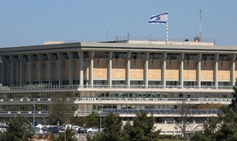
Where has the Oppositon gone?
Written By: Dr. Chen Friedberg
The danger of a weak opposition should not be underestimated. This situation harms most of all those populations who are not represented in government, and even harms the functioning of the government itself, which is not subjected to real criticism
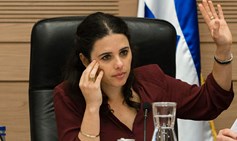
Behind the Scenes of Israel's Ministerial Committee For Legislation
Written By: Dr. Dana Blander, Dr. Chen Friedberg
There are ways to transform this powerful committee into one that combines politics with professionalism, instead of being one more arena for the settling of political scores.

Lessons from the Yisrael Beytenu Affair
Written By: Dr. Assaf Shapira
Regulation, transparency and enforcement capabilities are crucial steps for lobbying to work.
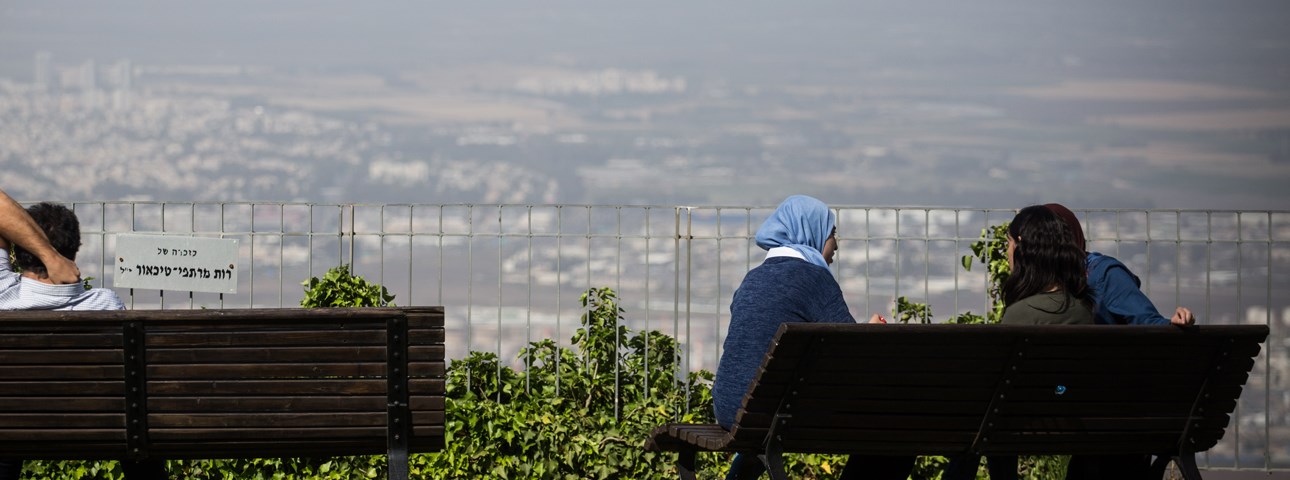
Time to Include Arabs among the Decision-Makers
Written By: Dr. Nasreen Haddad Haj-Yahya
The state and its Arab leadership, not only the political leadership, must work together to bring as many Arab citizens as possible into the decision-making echelons.

A Prime Minister Under Criminal Investigation
Written By: Prof. Ofer Kenig, Dr. Guy Lurie
A summary of where the law stands regarding alleged wrong doing by the premier, as well as timely suggestions for reform, are in order.

There is Still Hope for Knesset Reform
Written By: Yohanan Plesner
When legislators exhibit such disdain for the country’s legislative body, is it any wonder the average citizen does too?

Improving the Way the Knesset Functions
Written By: Dr. Chen Friedberg
A set of reforms must be implemented so that Knesset members' supervisory ability over the government will be enhanced.

Increasing the Size of the Israeli Knesset
Written By: Prof. Ofer Kenig
The Knesset is one of the smallest parliaments in the world, in terms of legislators per capita. As a result, the effectiveness of the Israeli parliament is diminished, especially regarding the important task of overseeing the executive.

Active Labor Market Policy Must Become Priority
Written By: Prof. Yotam Margalit
For Israel's economy to grow, significant investment in building a strong and effective infrastructure for occupational training and reemployment is critical.
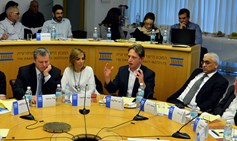
Civil Service Commissioner: For Country or Government?
Written By: Motty Shapira
The civil service commissioner holds an important public position, and should not be relegated to serving as a rubber stamp for the government.
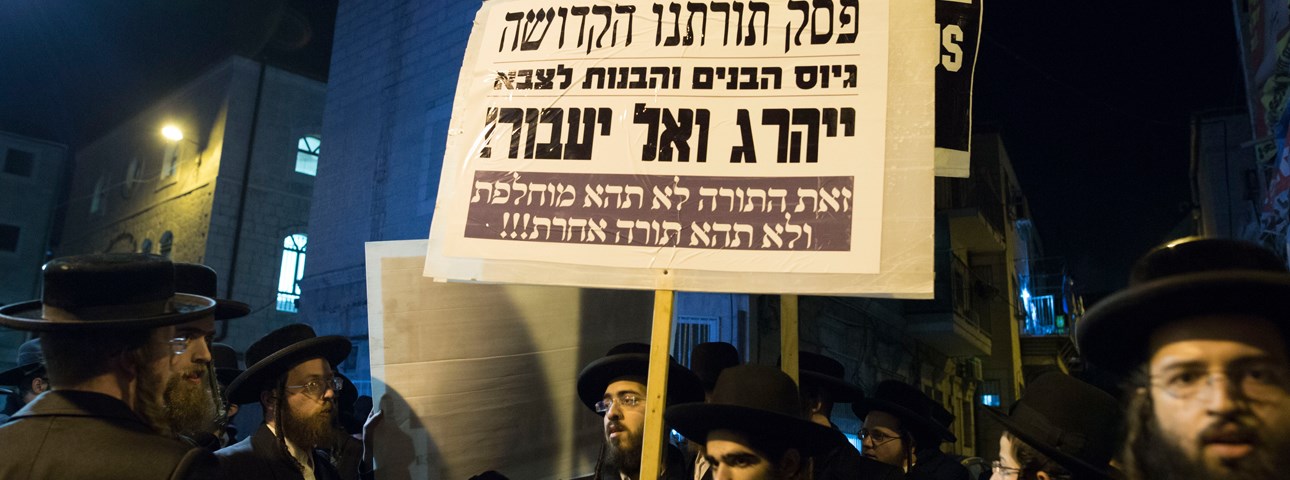
What remains of the religious status quo?
Written By: Dr. Shuki Friedman
Instead of Judaism being what unites Jews in Israel with Jews around the world, our religion has become the main source of conflict.

Eli Hurvitz Conference on Economy and Society
With the featured participation of: Bank of Israel Governor, Education Minister, Economy Minister, Director-General of the Finance Ministry, Director-General of the Prime Minister Office, Chairman of the Histadrut Labor Federation, Director-General of Bank Leumi, Director General of Microsoft Israel and other VIPs

The Israel Democracy Institute criticizes decision to reduce search committees for public service employees from 5 to 3 and says discussions of allowing additional political appointees ‘will harm the professional ethos of the public service’
IDI President Yohanan Plesner said of this latest development: “While one hand in the government is taking significant steps to diminish regulation and improve human resources in the public service, the other hand is harming these efforts.
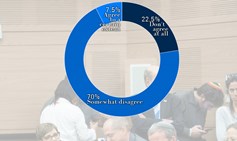
What Do Parliamentary Aides Think of the Work of Members Of Knesset?
Researchers surveyed aides in 40 Knesset offices. Of those, 92% of aides says they think MKs do not come prepared for Knesset committee meetings and that the Knesset is not succeeding in properly supervising the government (95%).
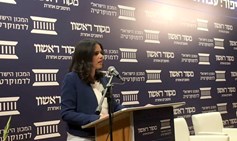
Justice Minister Ayelet Shaked: 'Legislation is like medicine'
At joint Israel Democracy Institute-Makor Rishon conference, ministers also addressed chemical weapons tragedy in Syria.

IDI Ahead of the Vote on the V-15 Bill:
‘The bill sets an extremist and dim precedent, which casts a shadow of harsh limitations on freedom of expression’
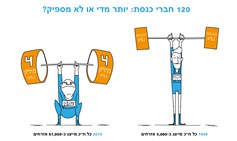
Happy Birthday, Knesset!
Written By: Prof. Ofer Kenig
As the Knesset, Israel’s legislature, marks its birthday, IDI takes the opportunity to consider two aspects about it: its members’ social composition and its relative size.
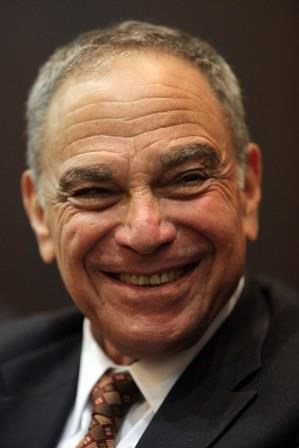
Professor Eytan Sheshinski joins the Israel Democracy Institute (IDI) as a Senior Researcher in the Center for Governance and the Economy
Top Israeli economist, Professor Eytan Sheshinski, has joined IDI as a senior researcher in the Center for Governance and the Economy, under the leadership of Dafna Aviram-Nitzan.

IDI President Responds to Advancement of V-15 Bill
Today, the V-15 bill advanced to the Knesset, with a vote expected as early as later this week.

Elor Azaria: Statement by IDI President Plesner
Following the conviction of Elor Azaria on Wednesday, January 4, IDI President Yohahan Plesner called on leaders to spearhead a coordinated effort involving the education system, the IDF, and the political leadership.

